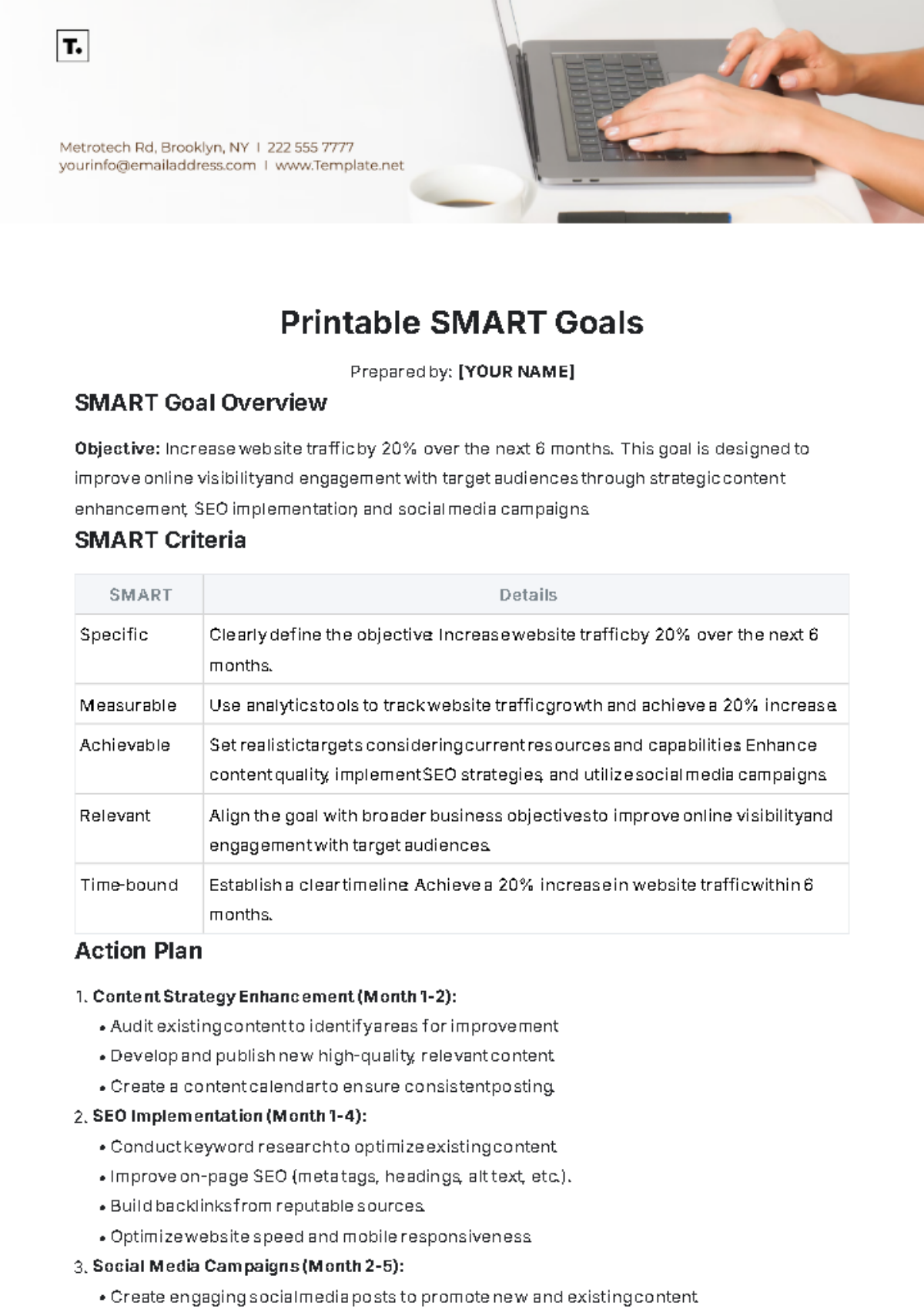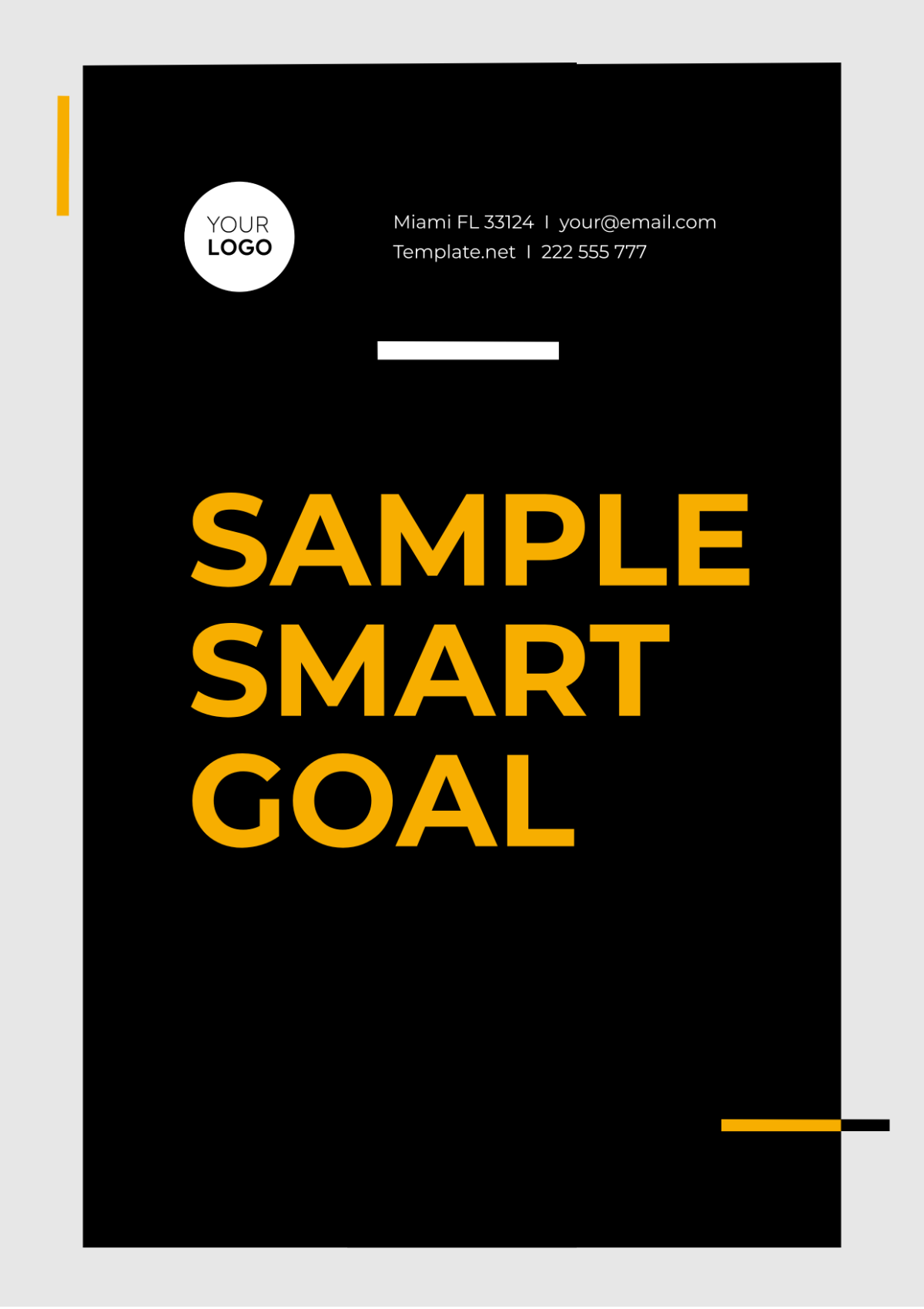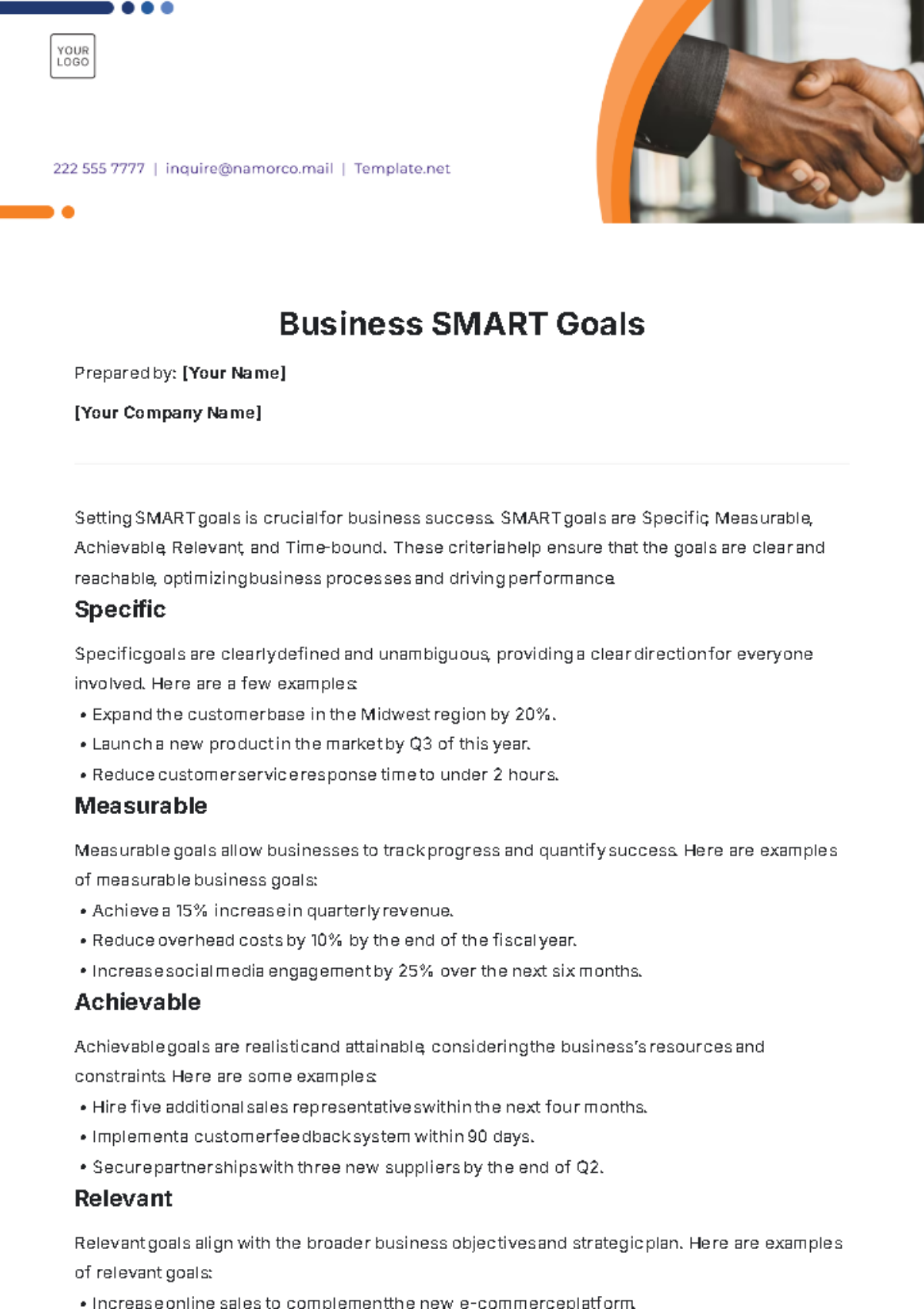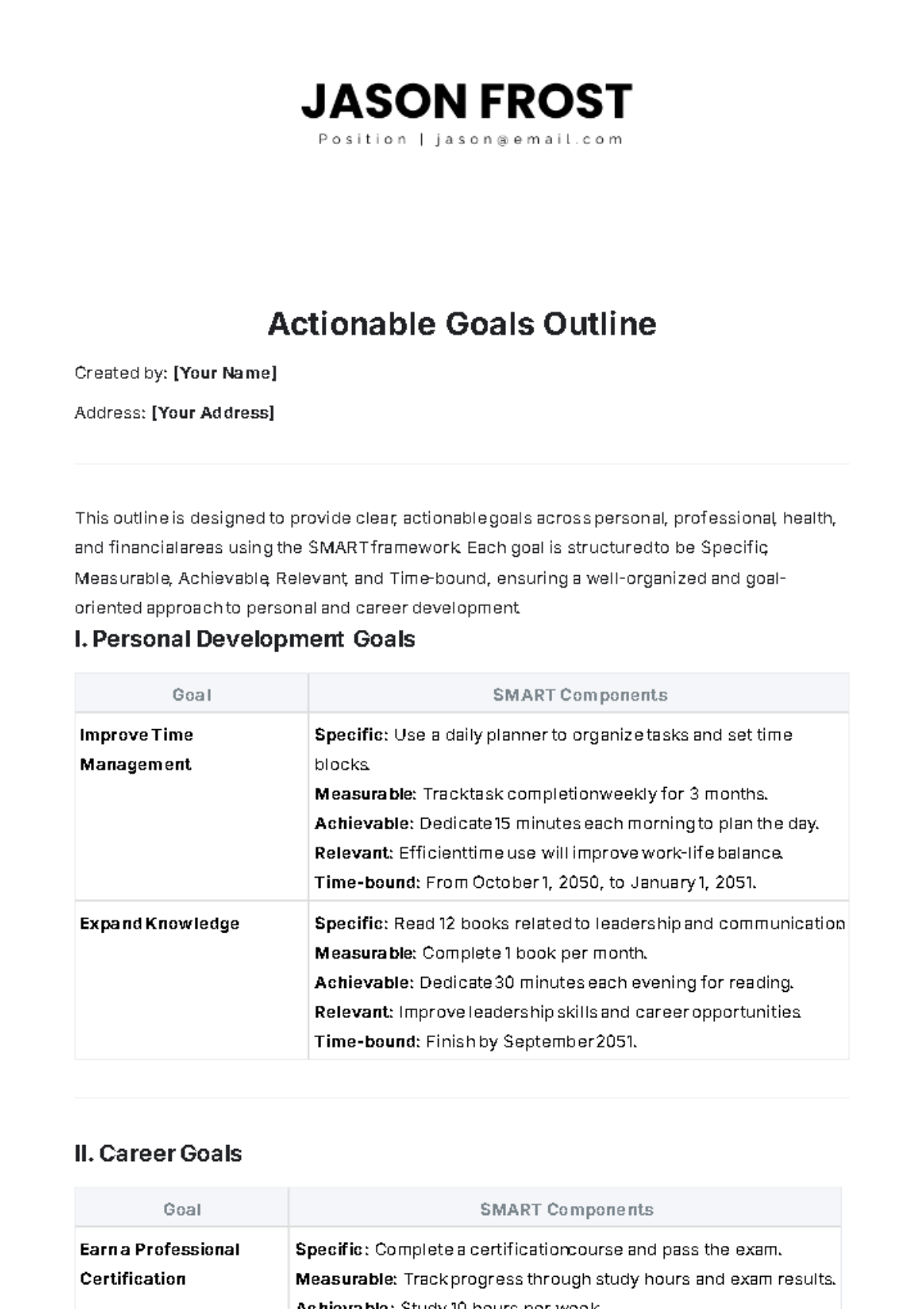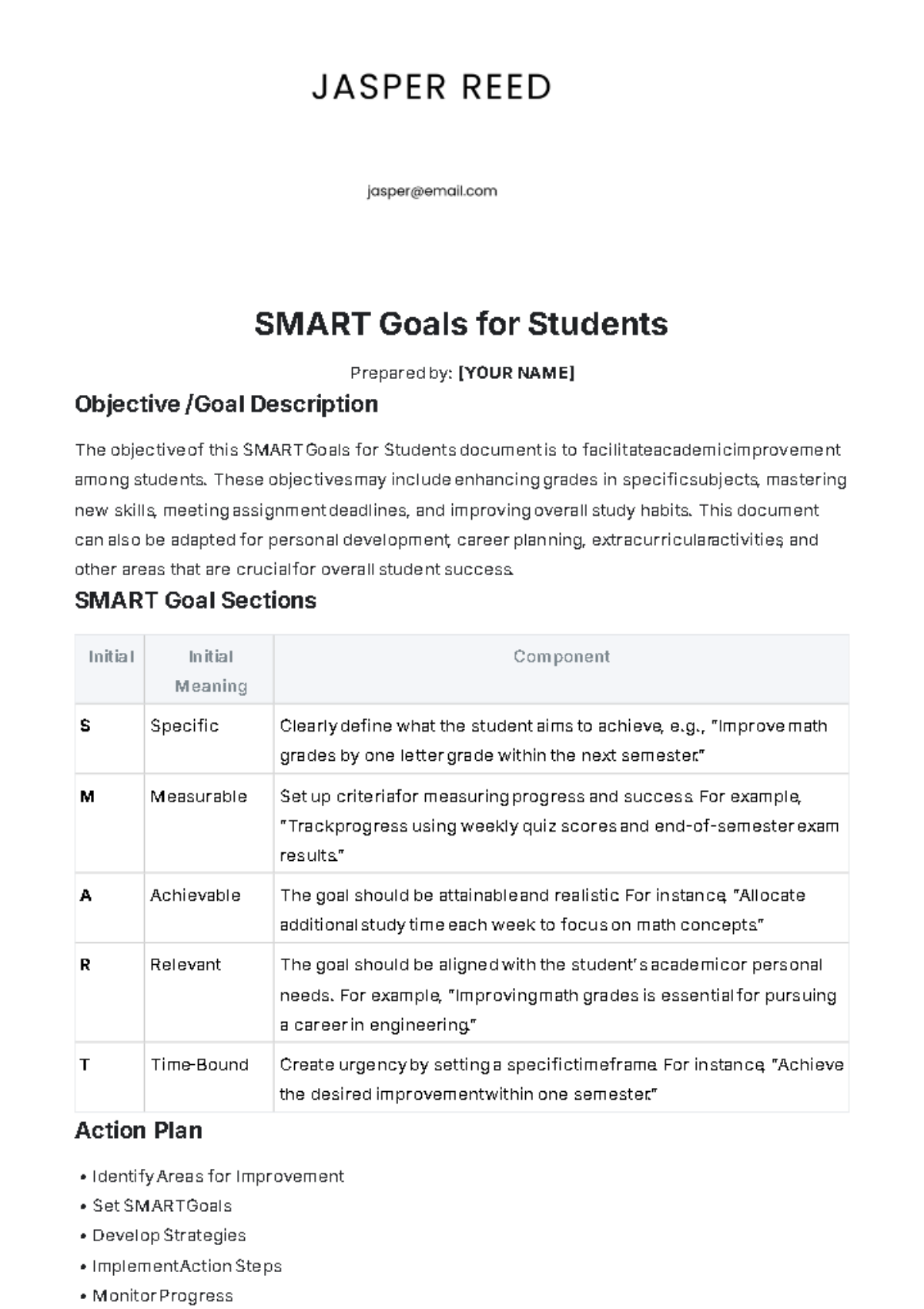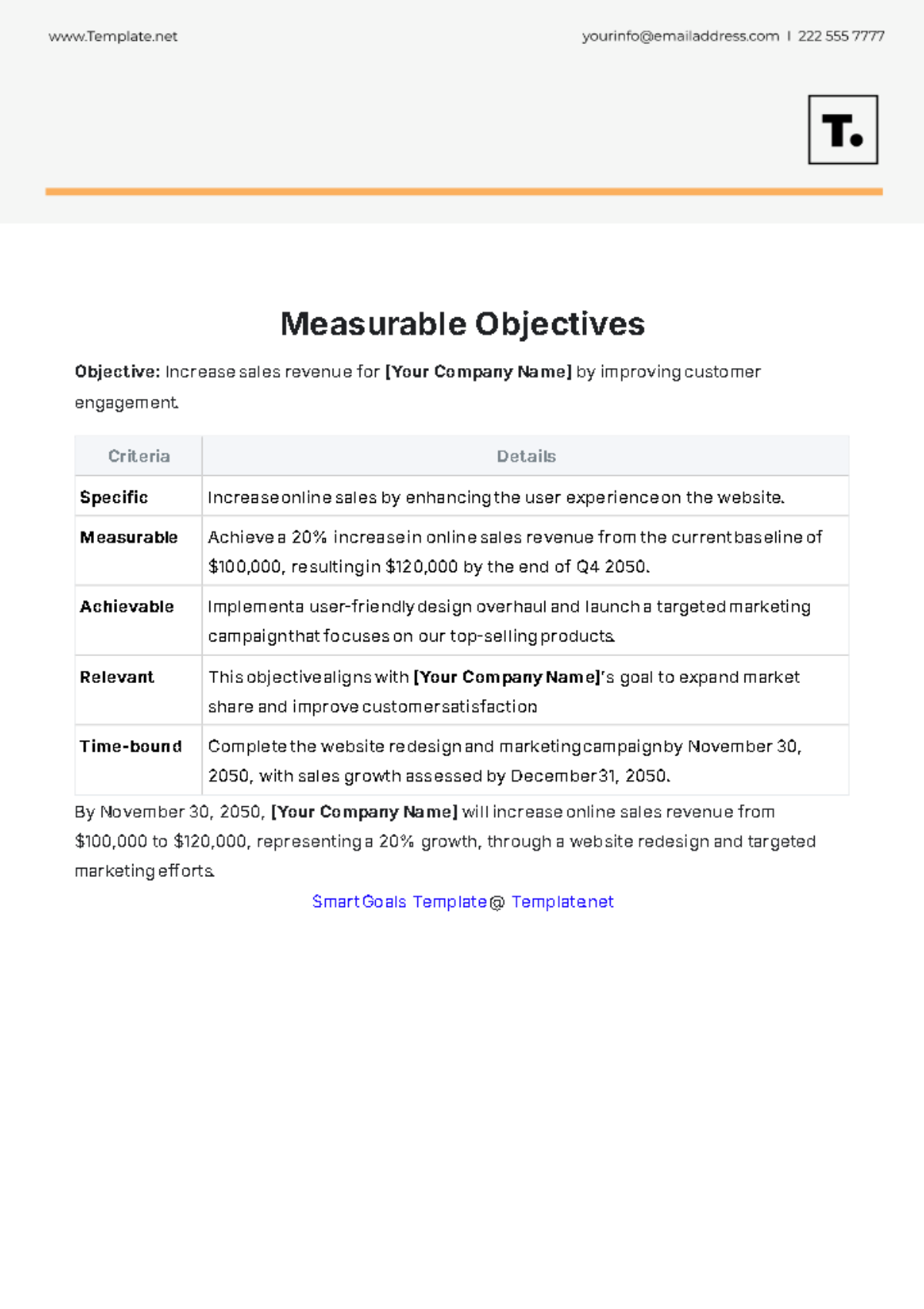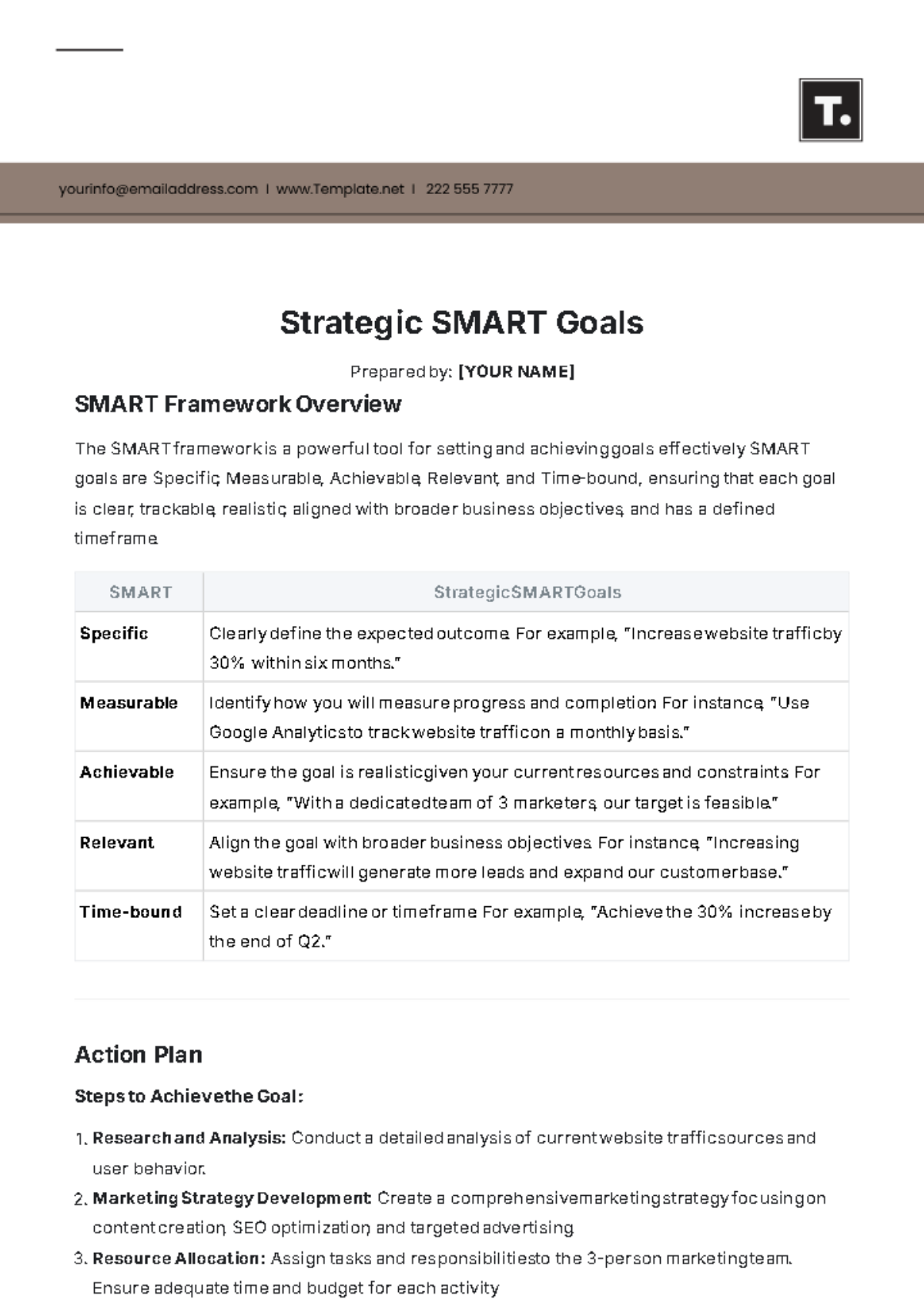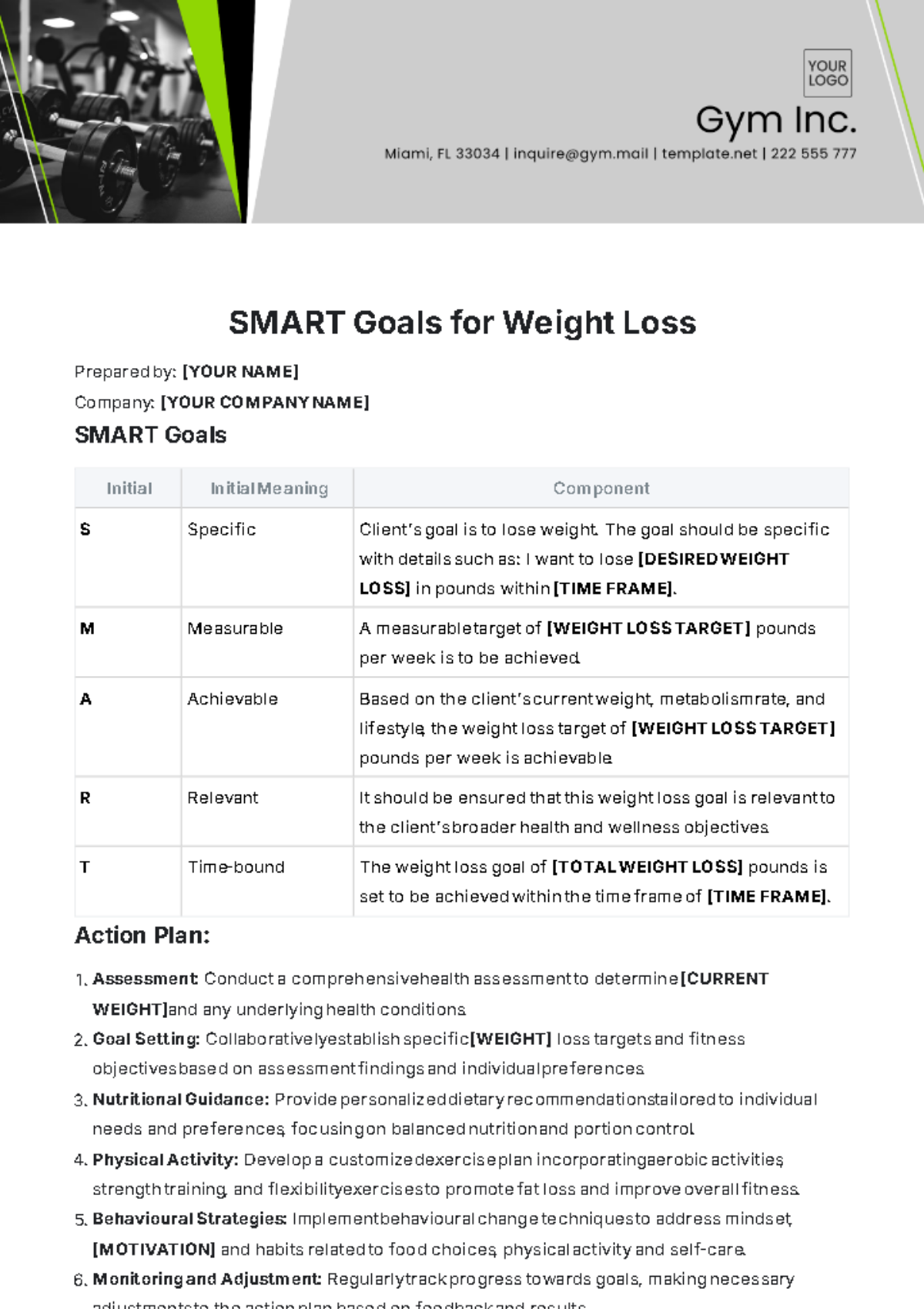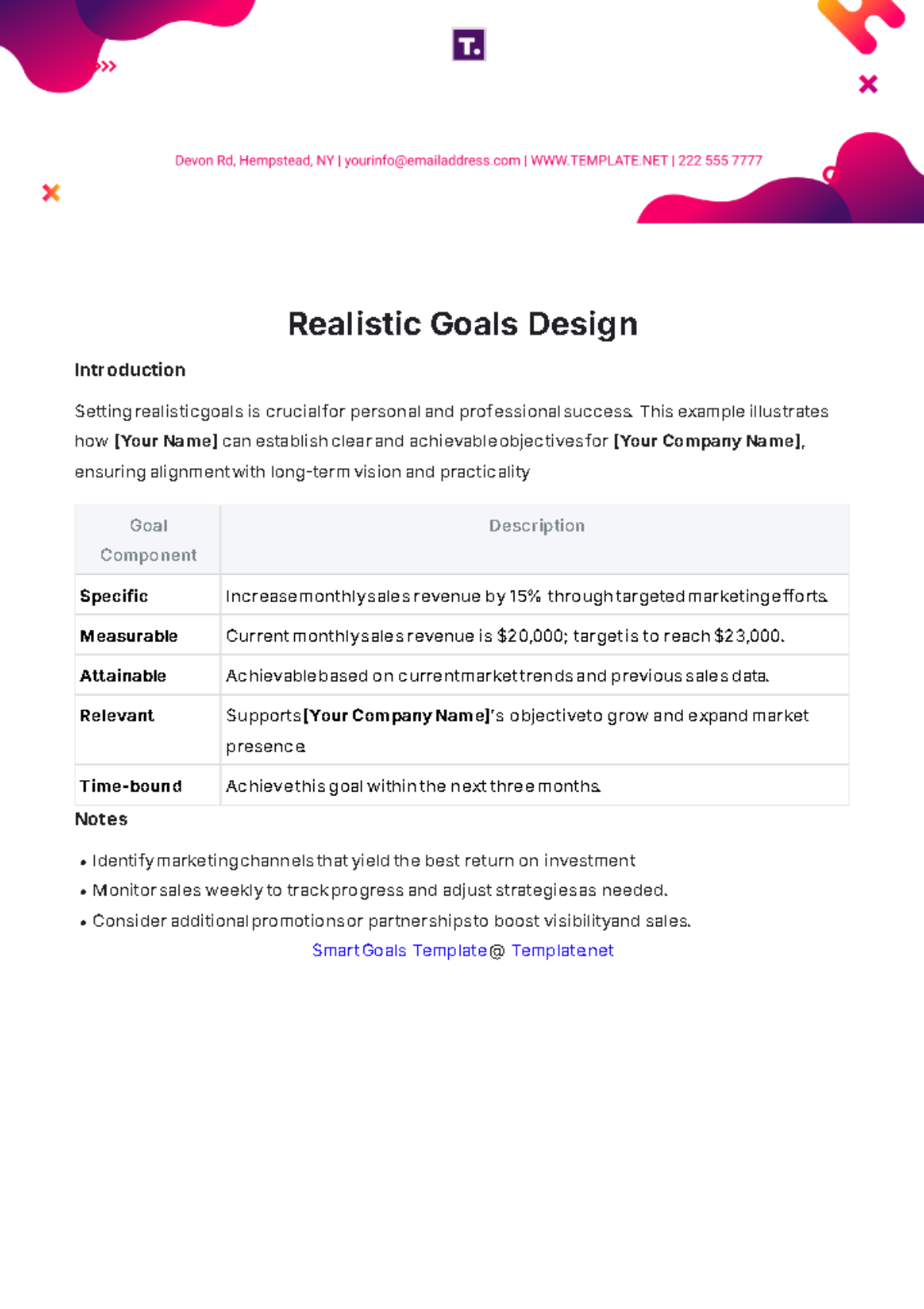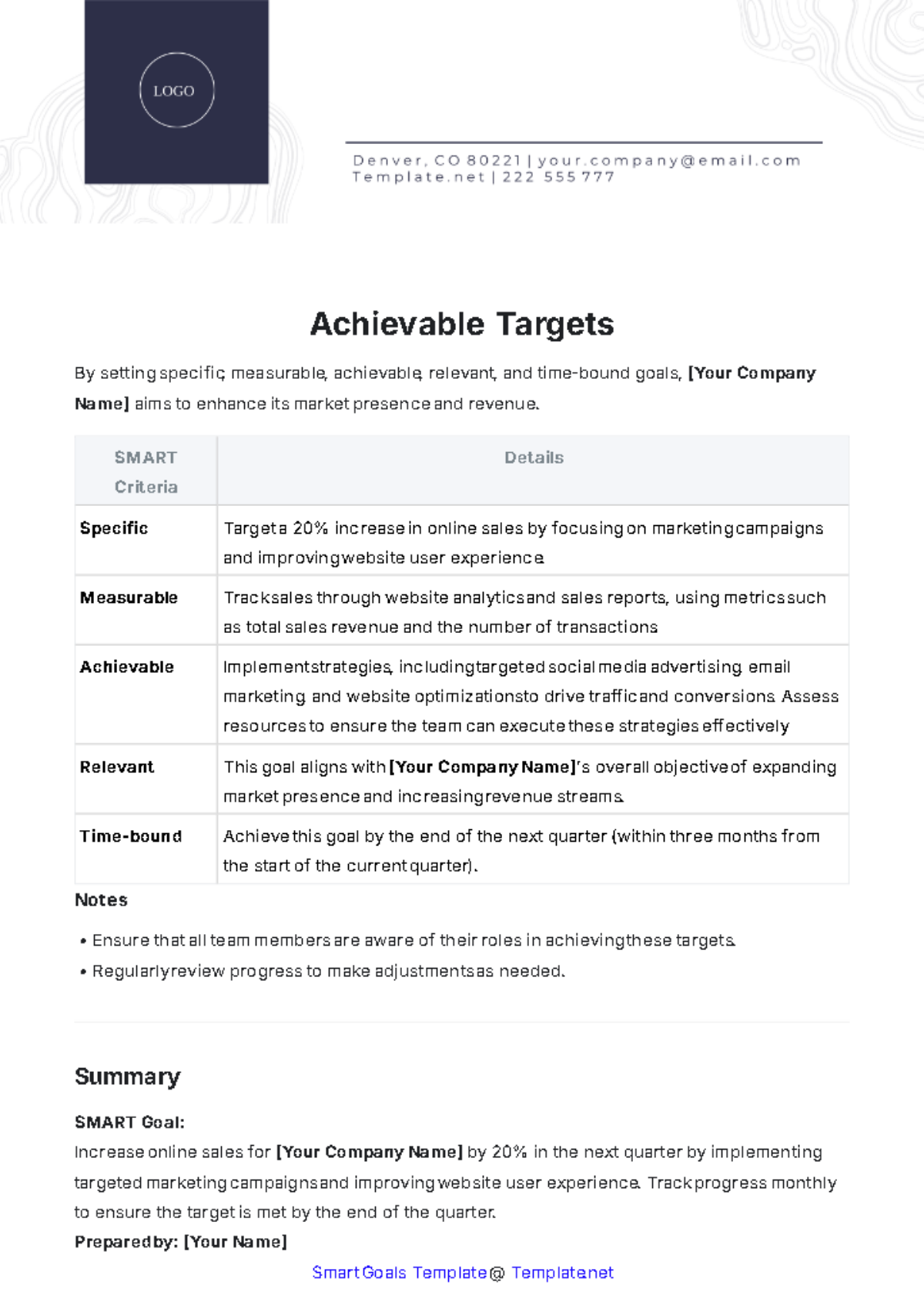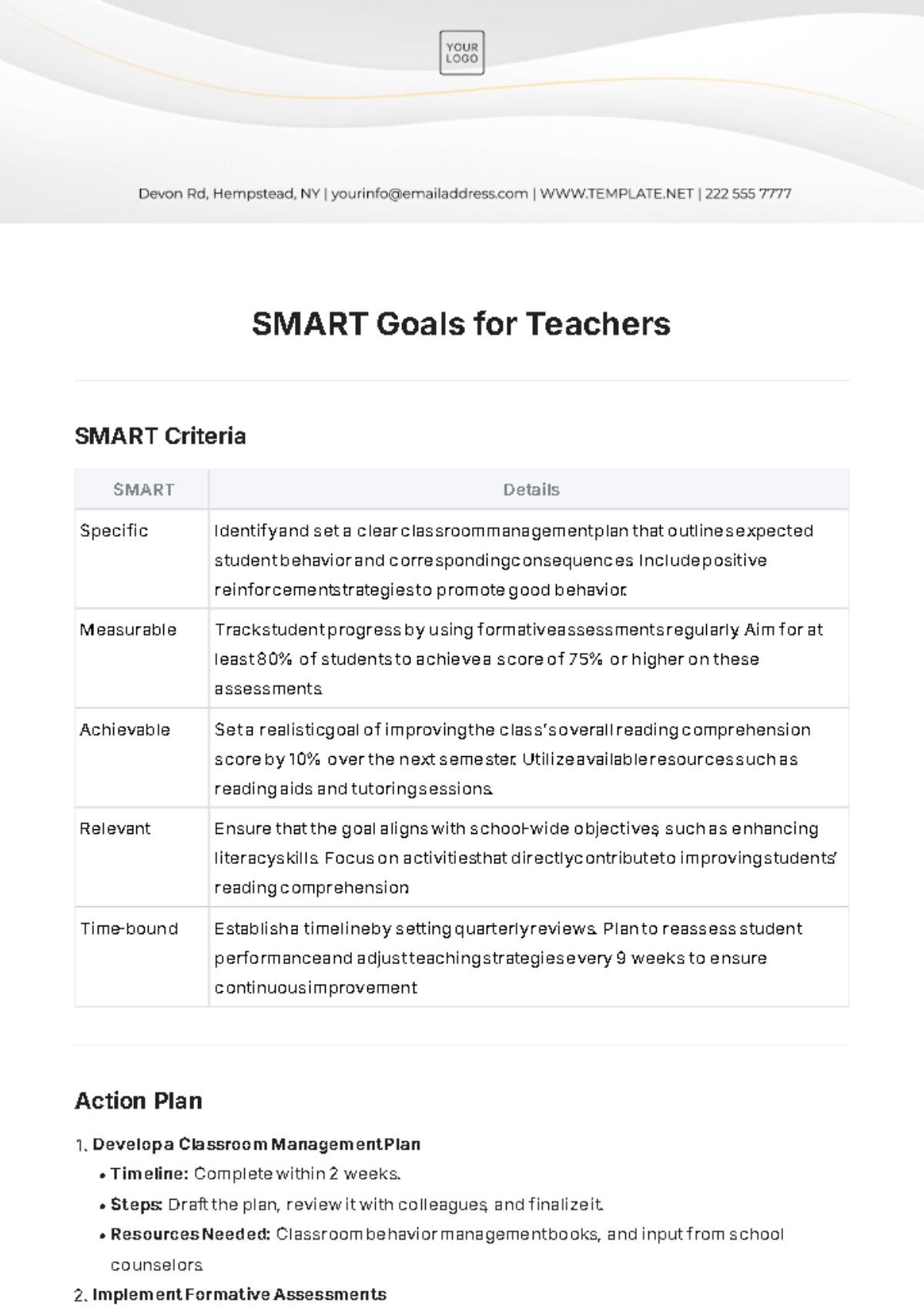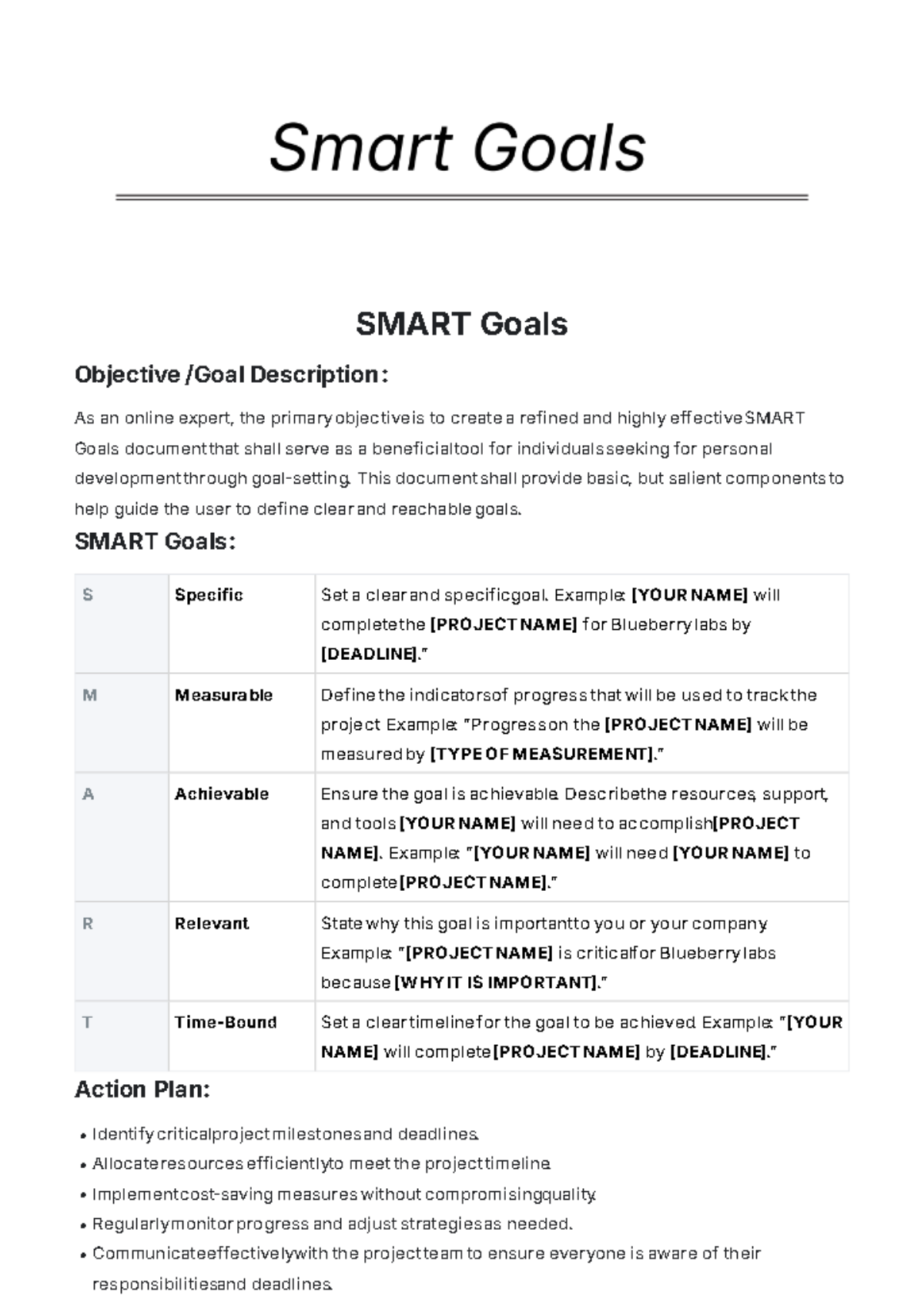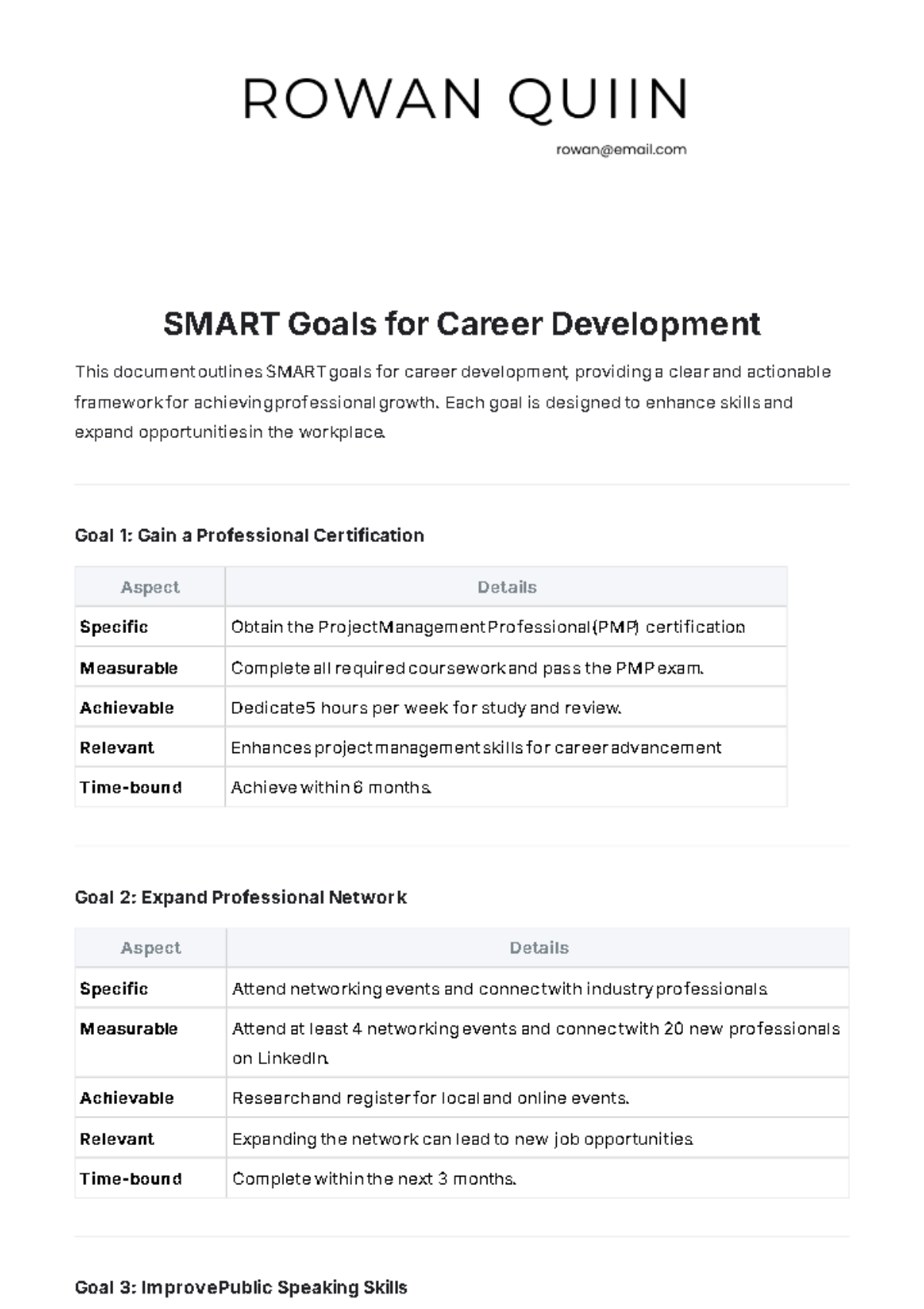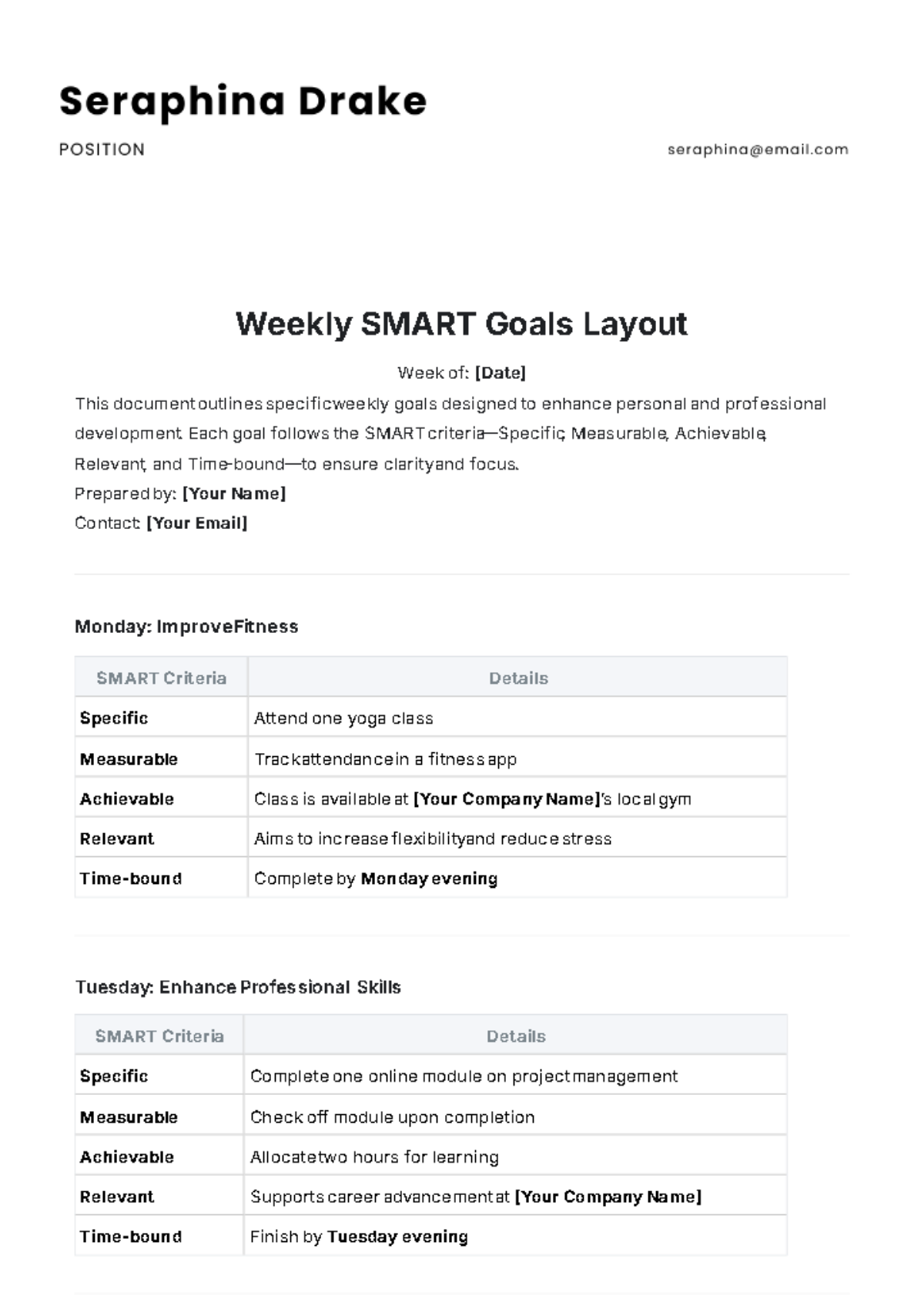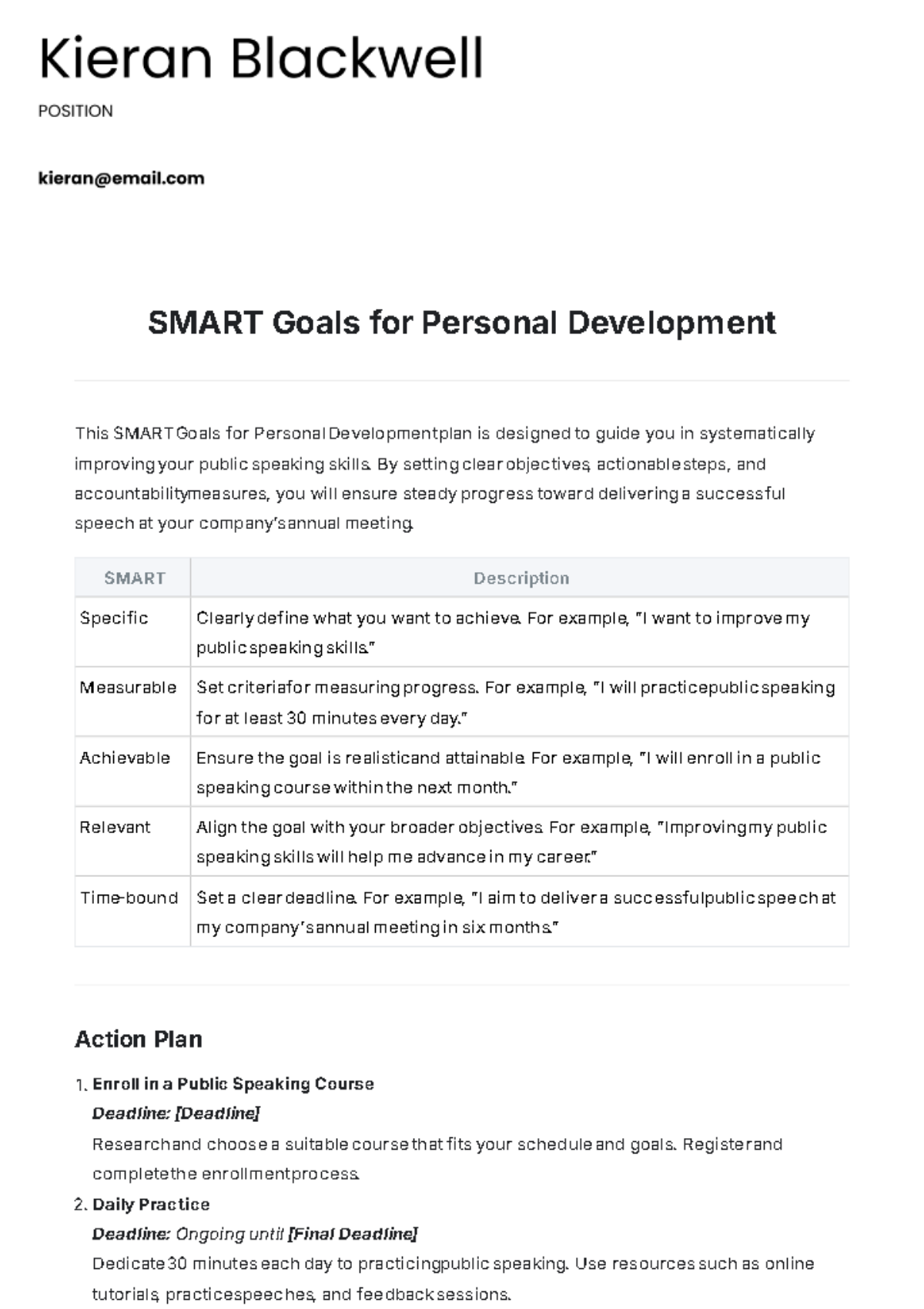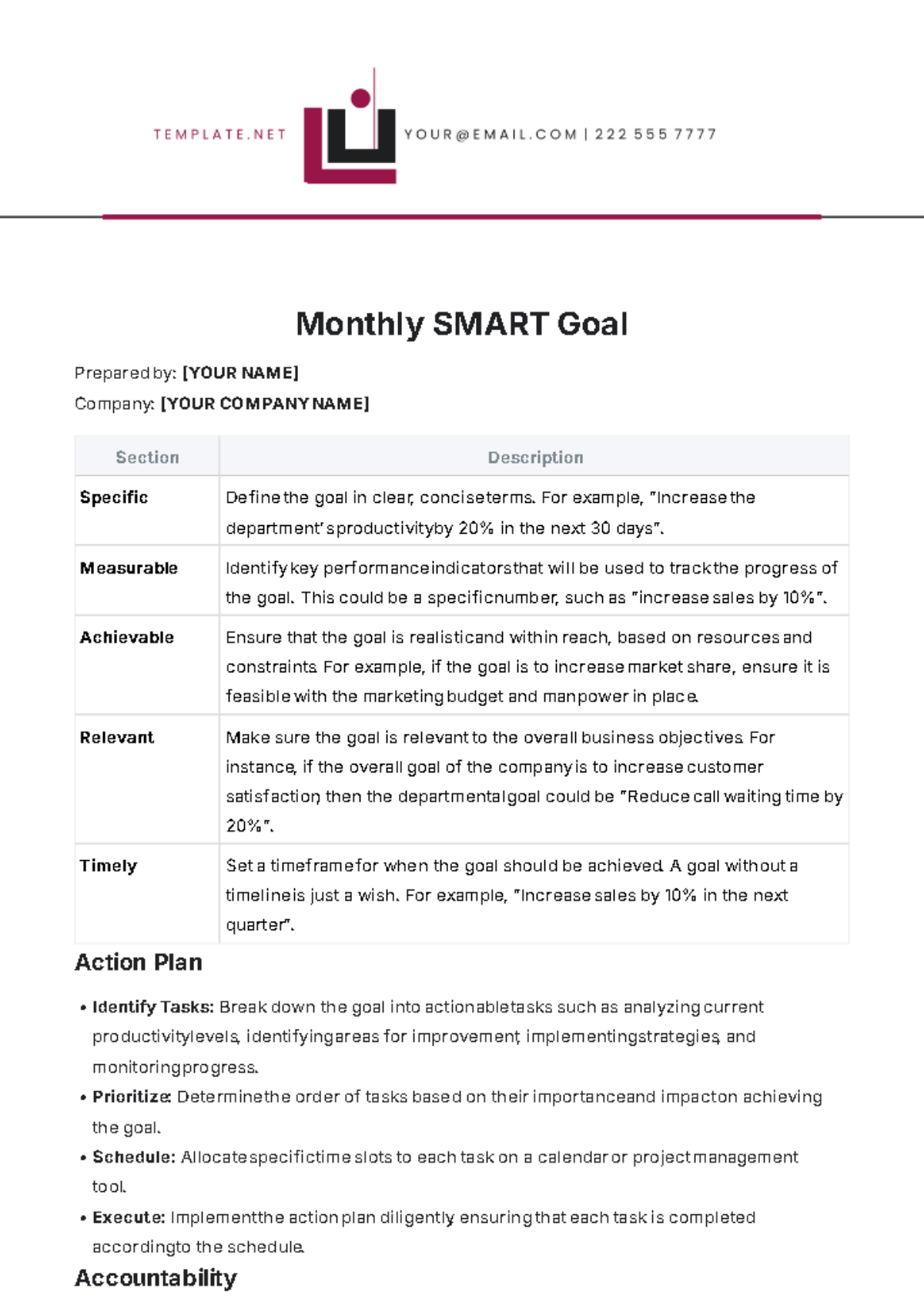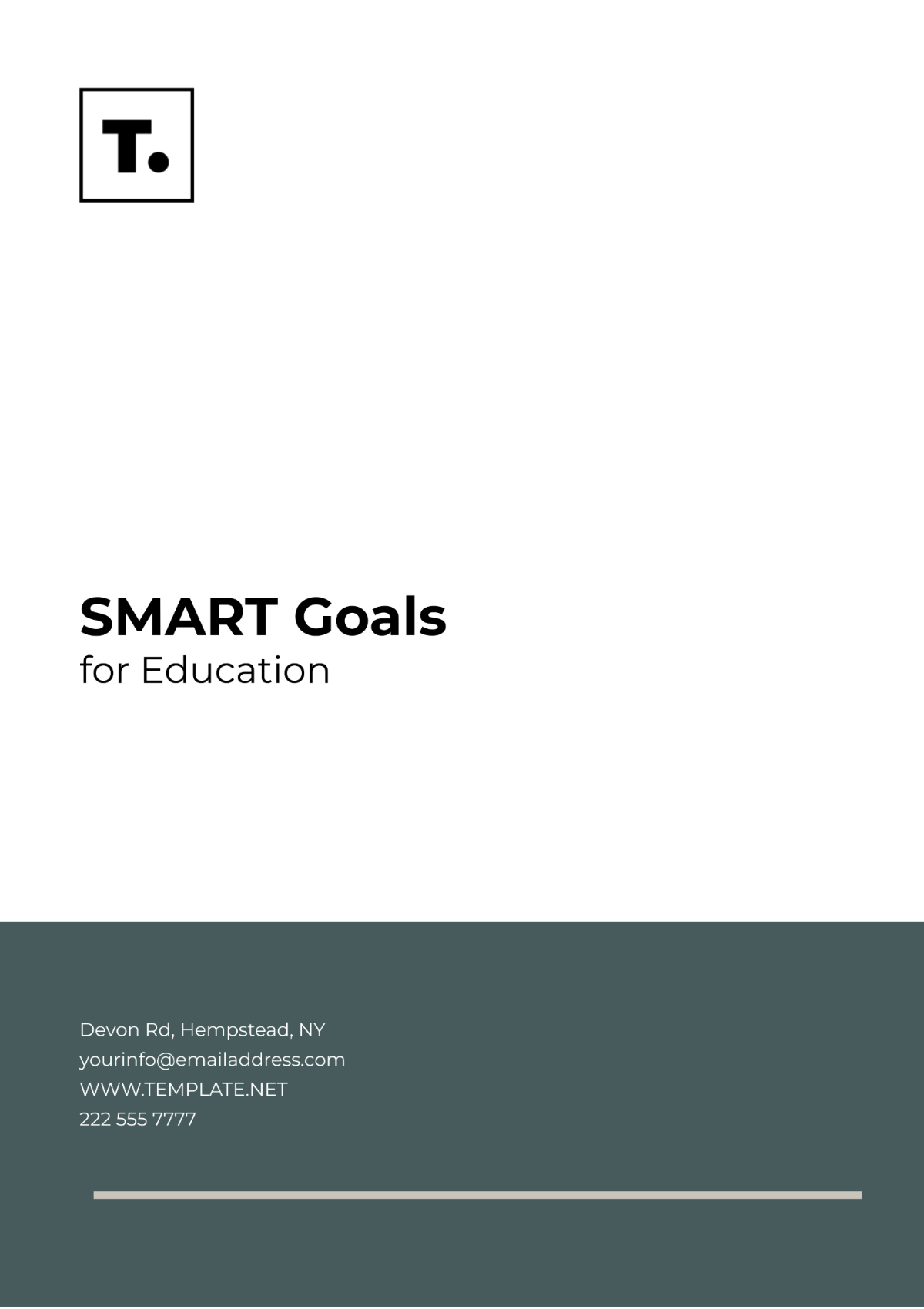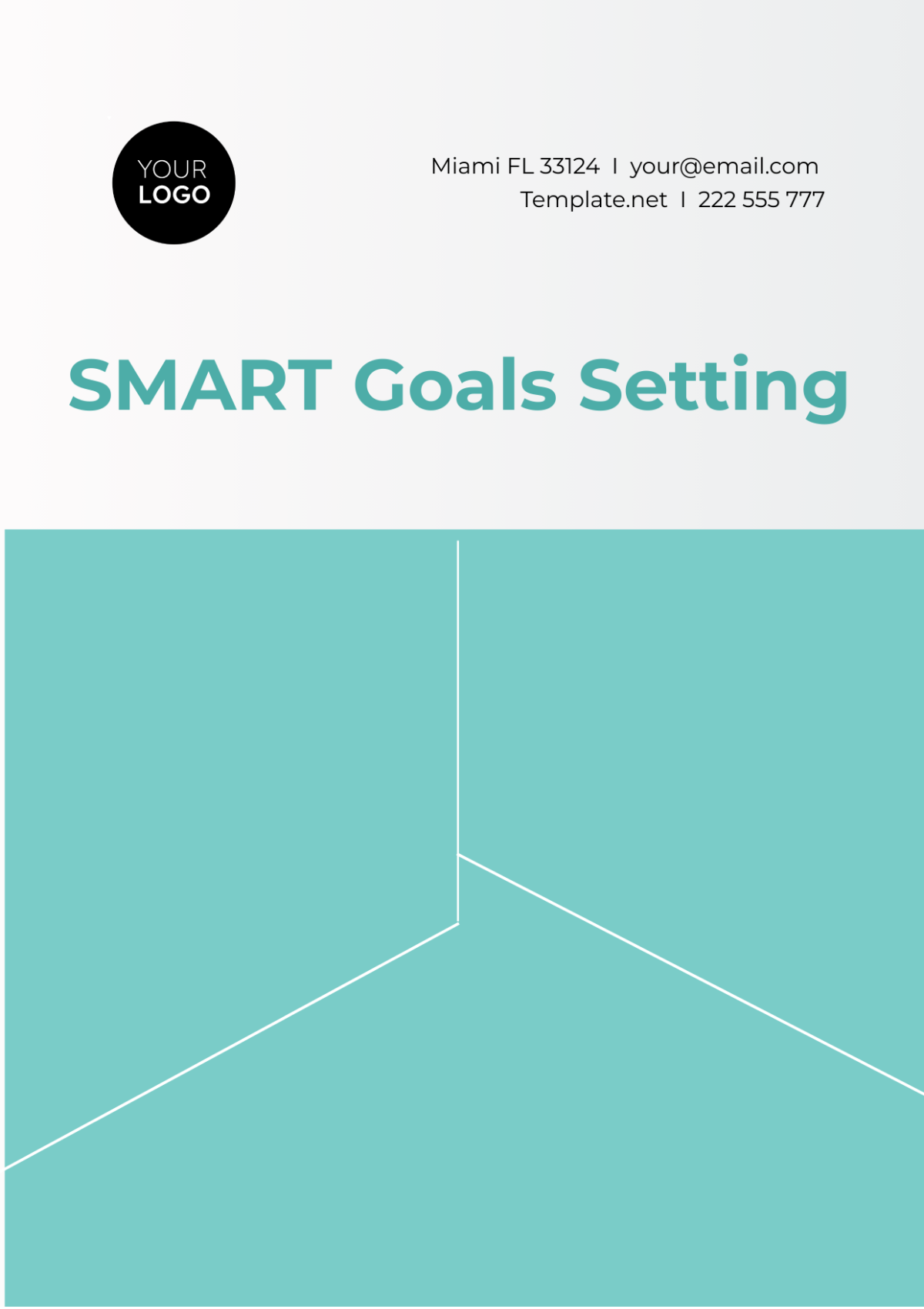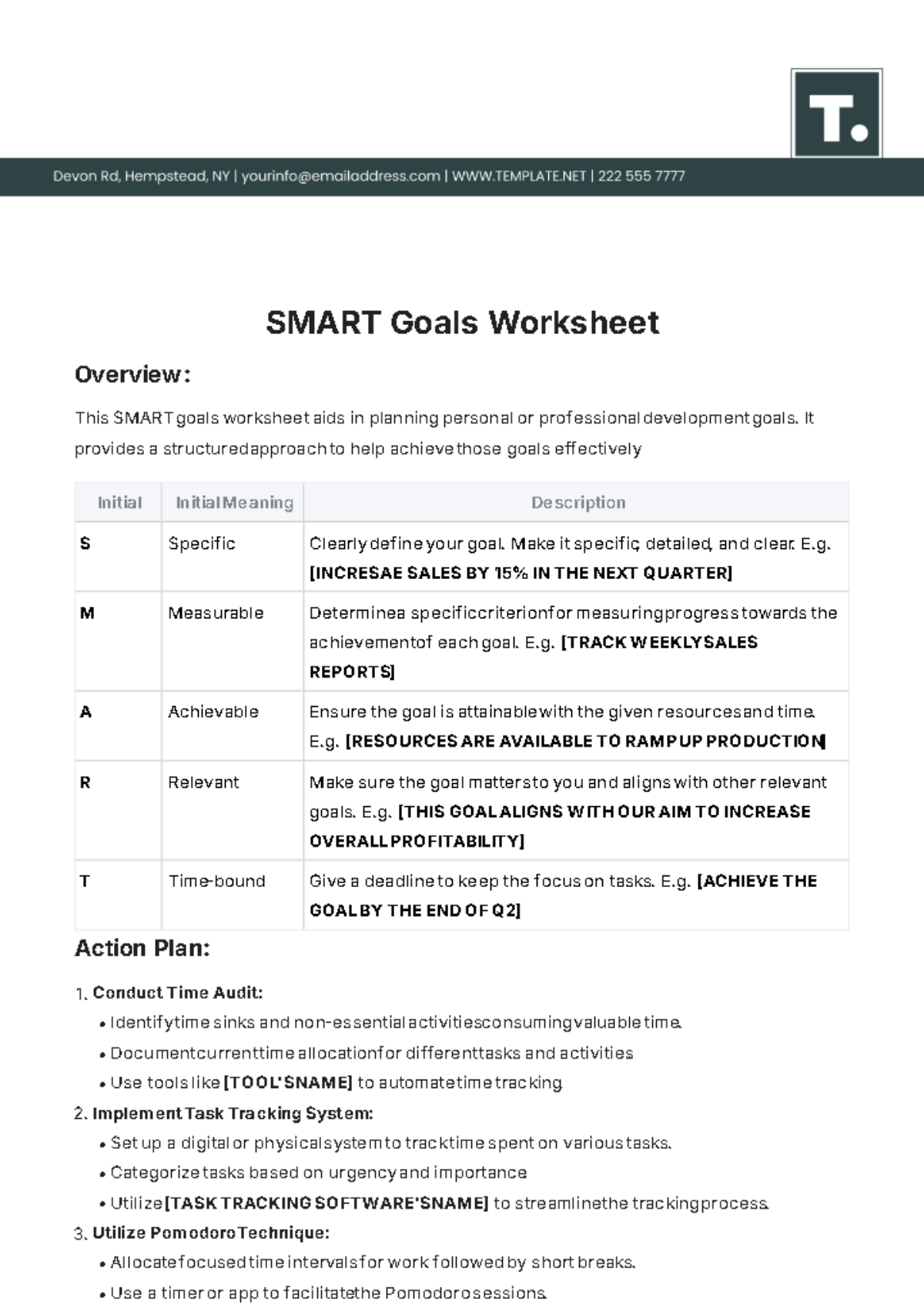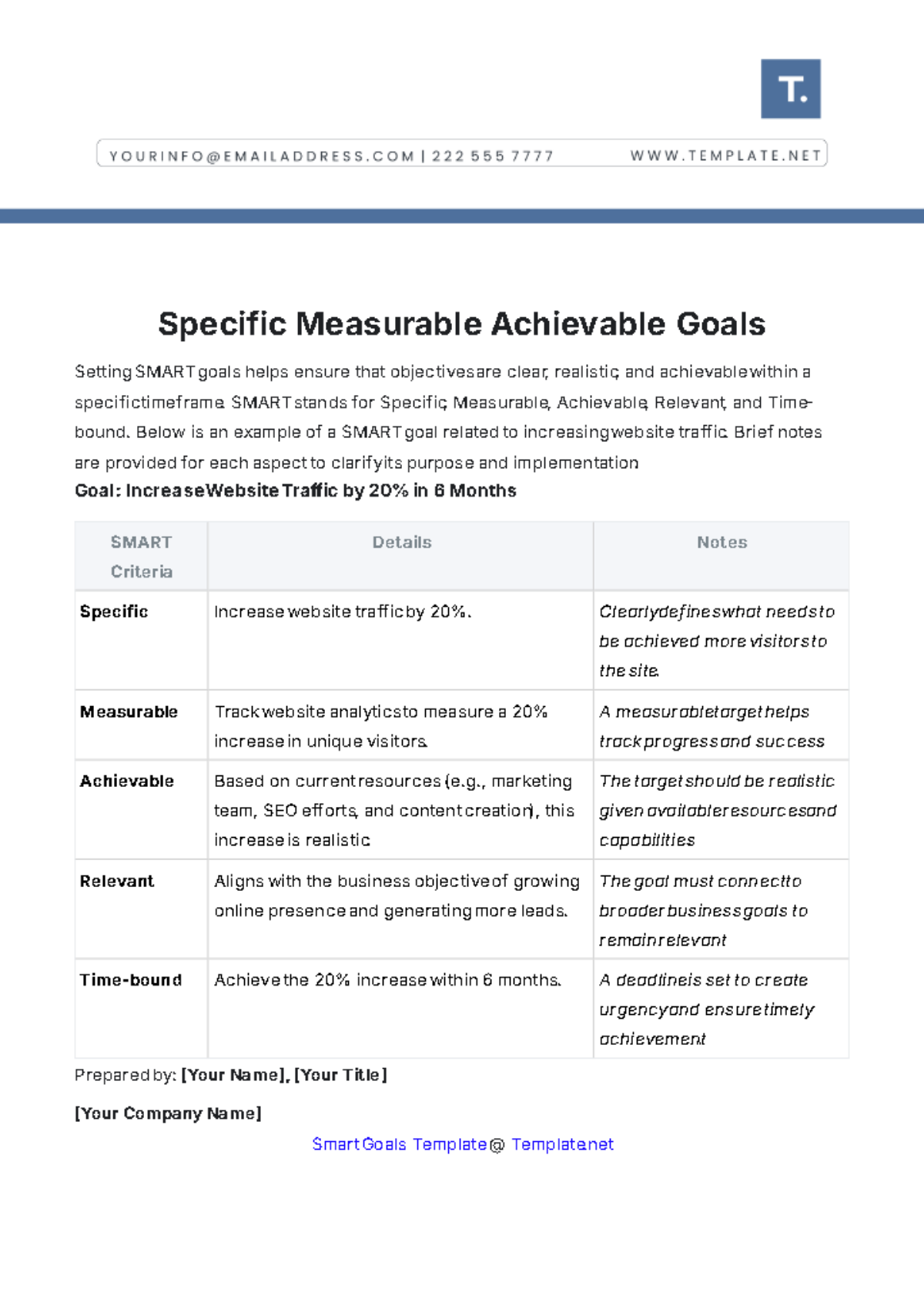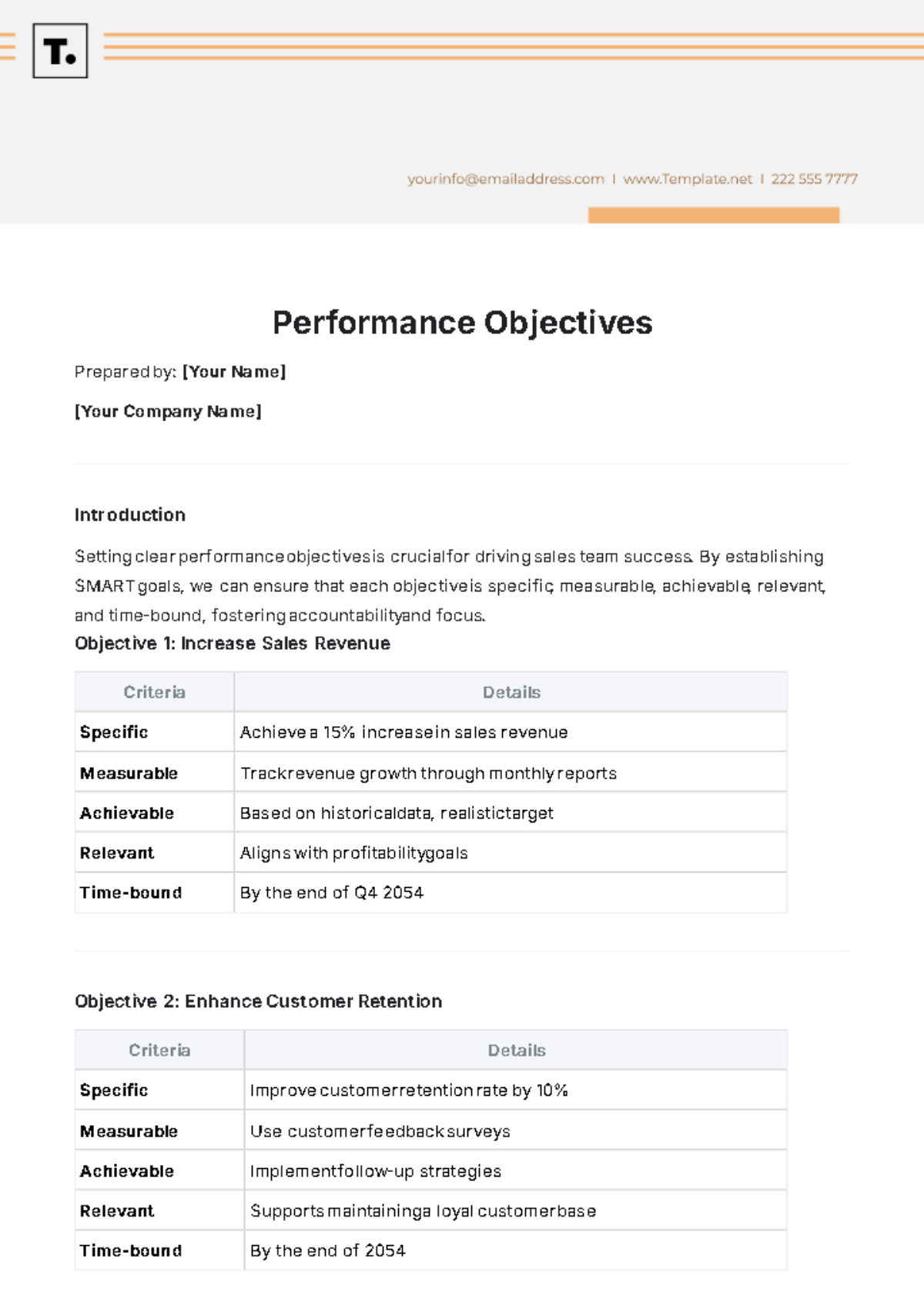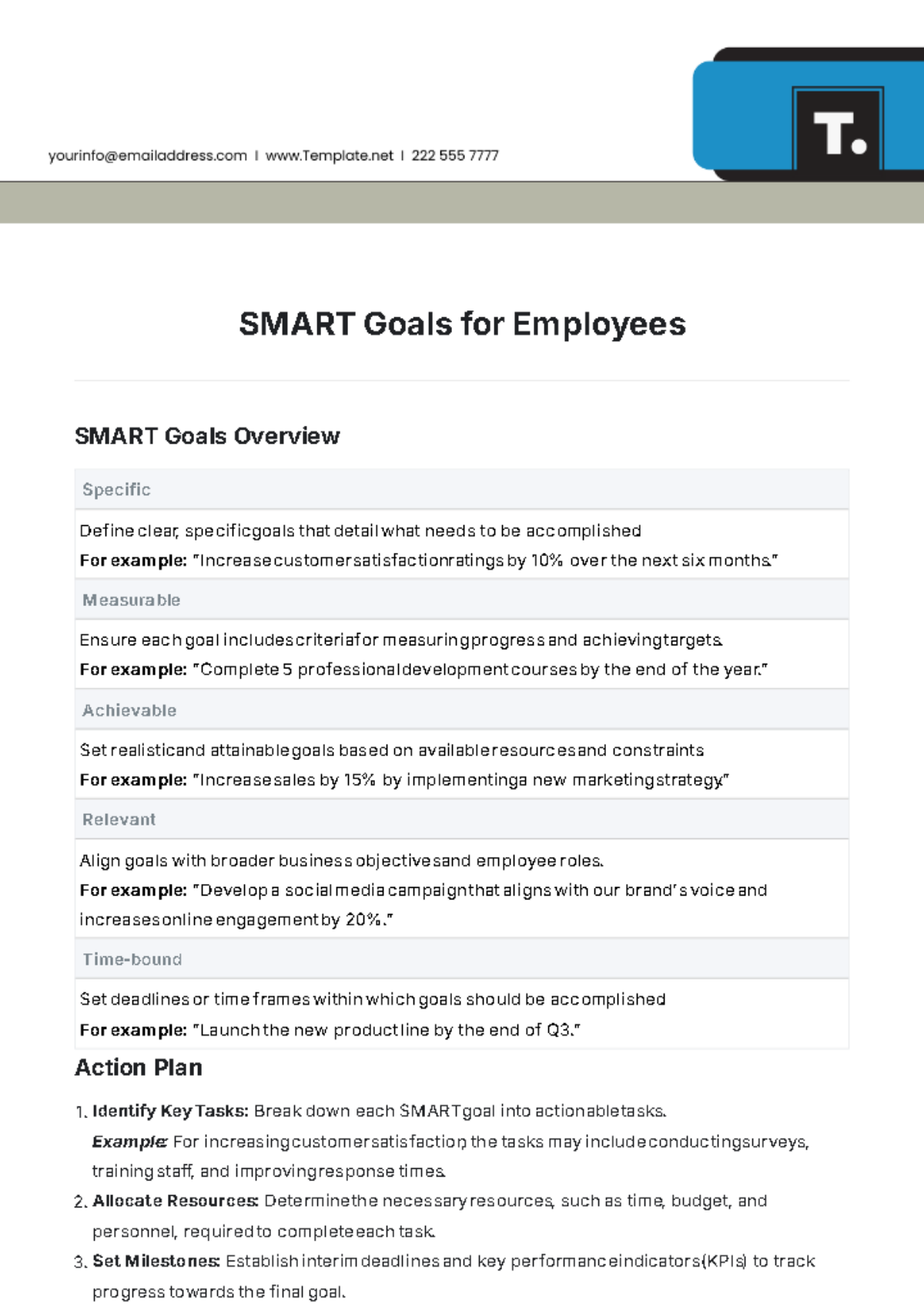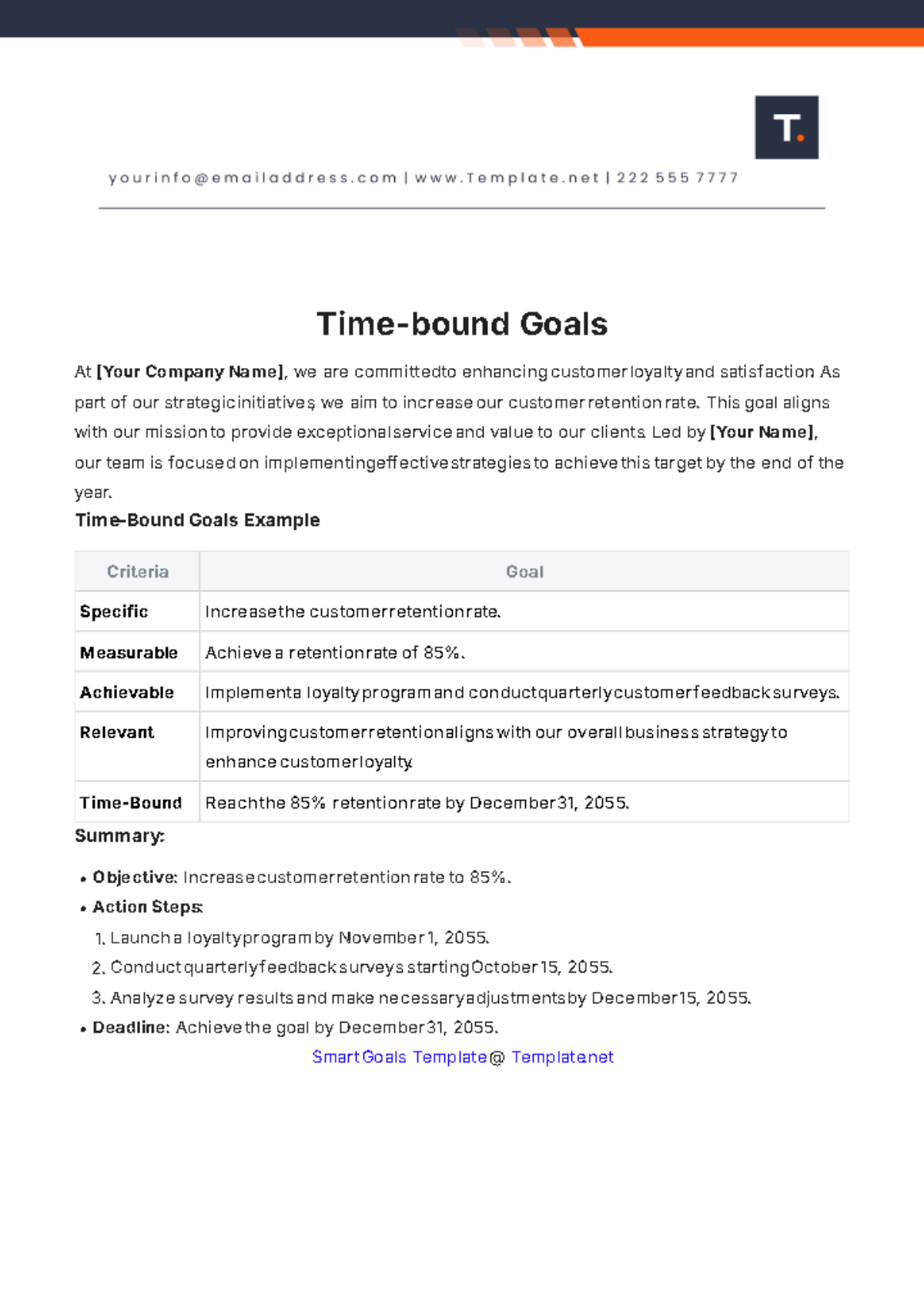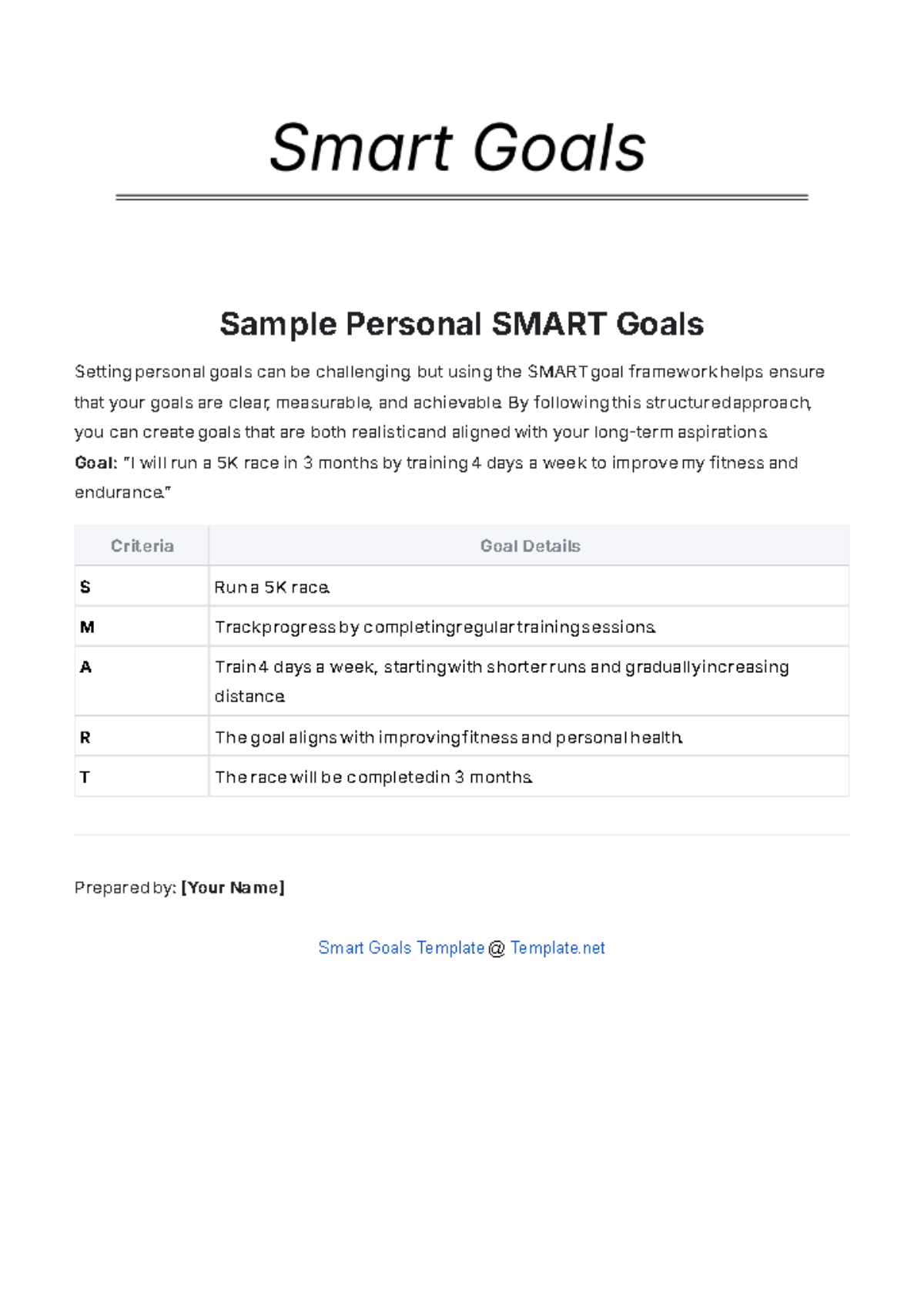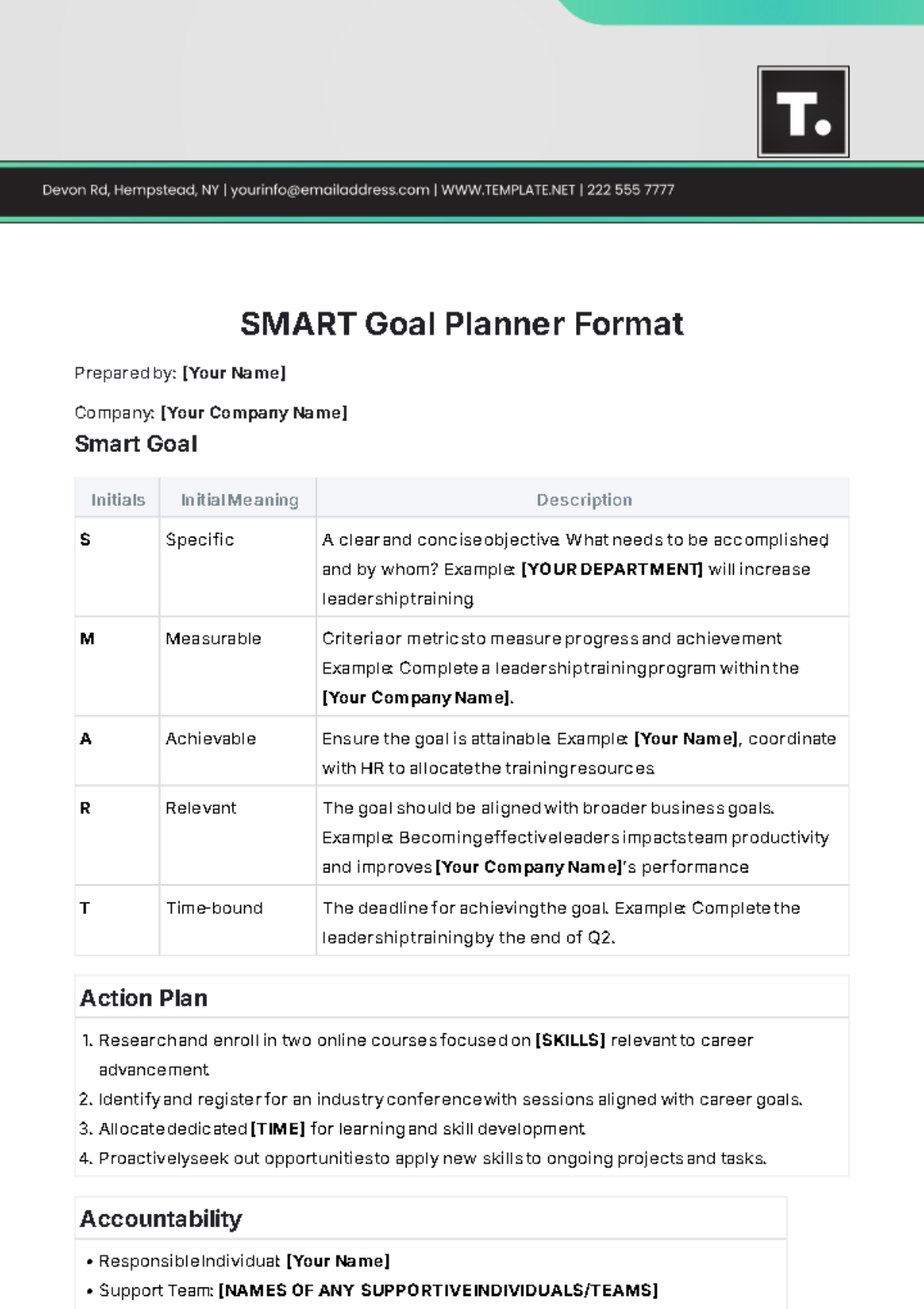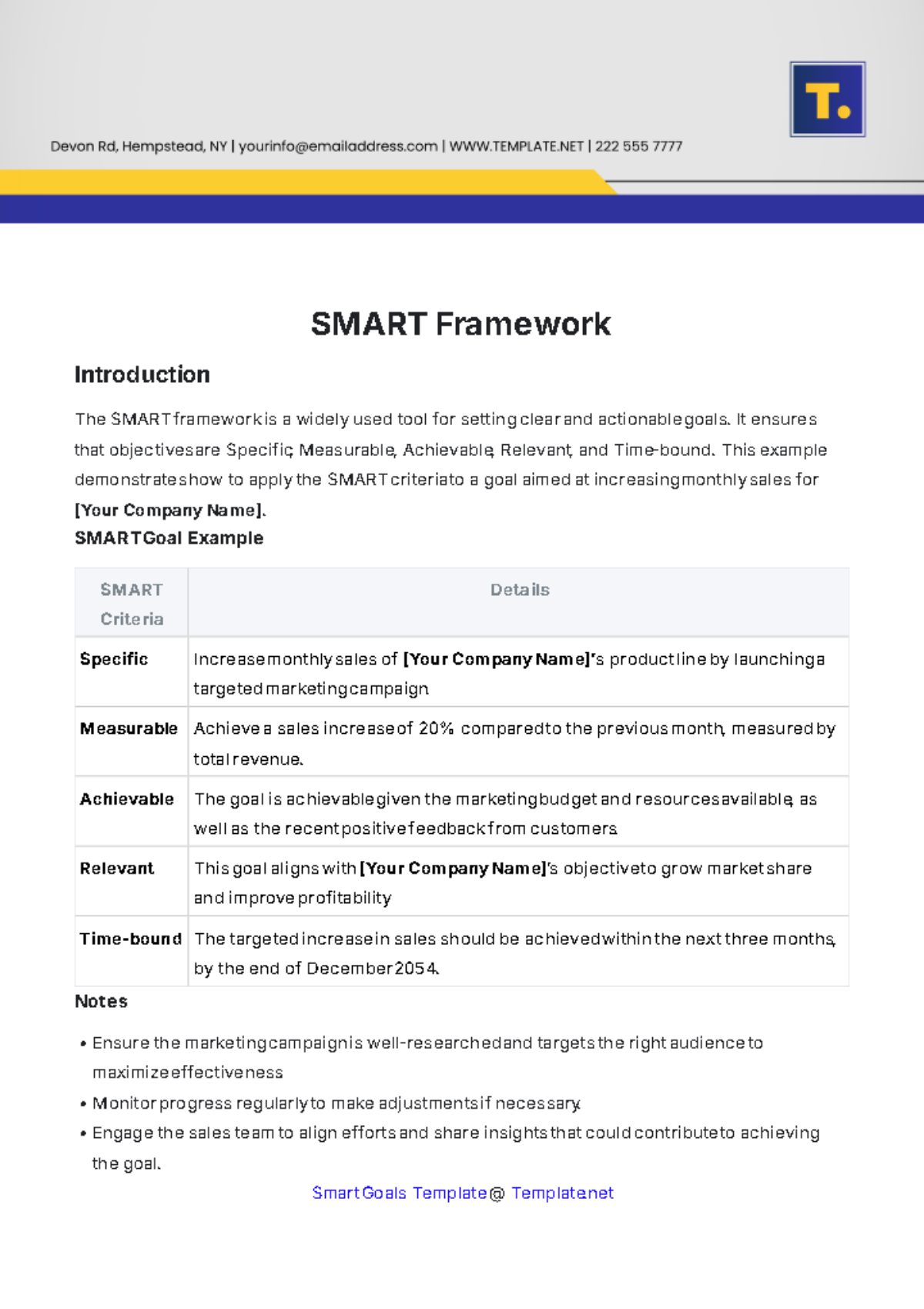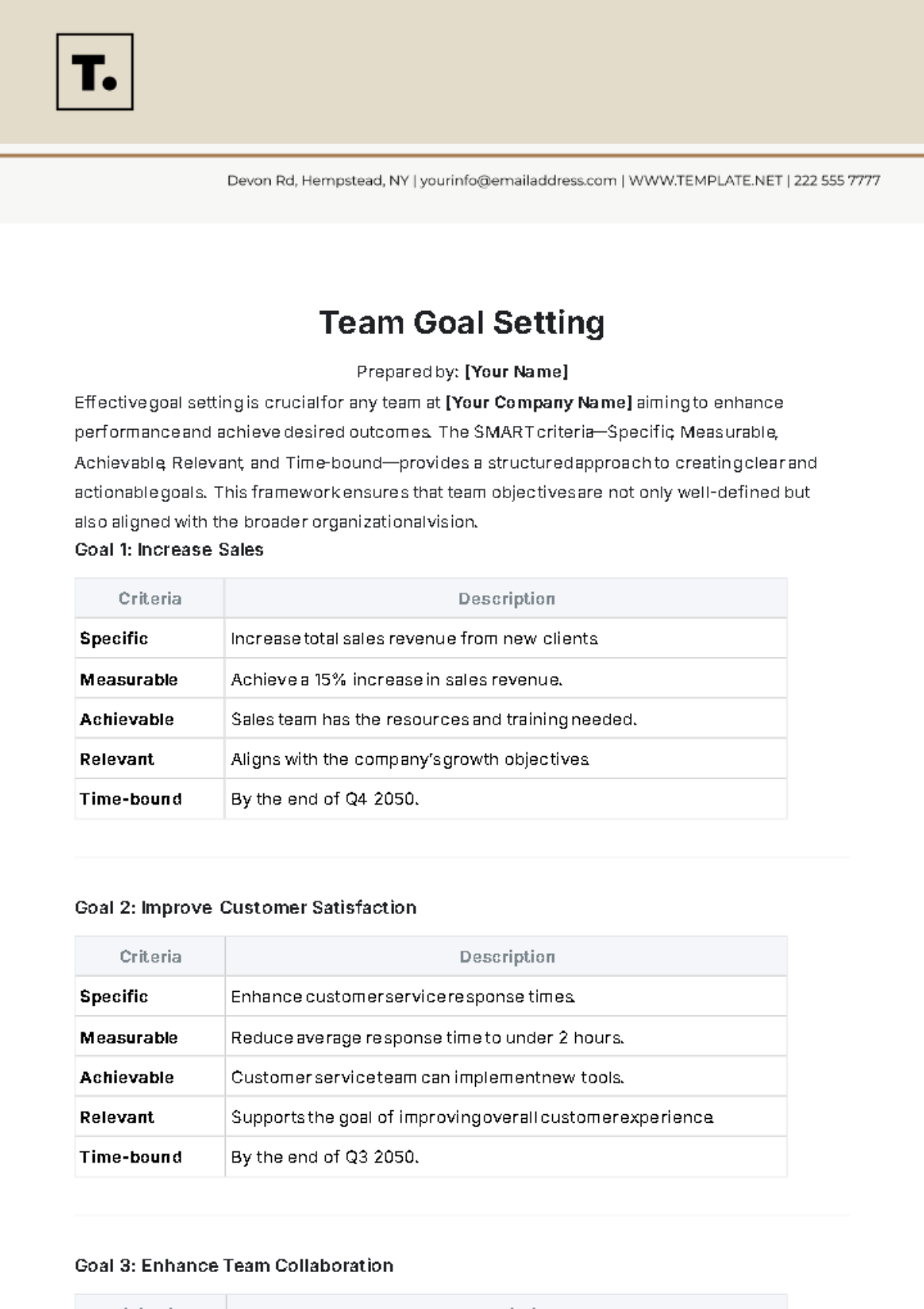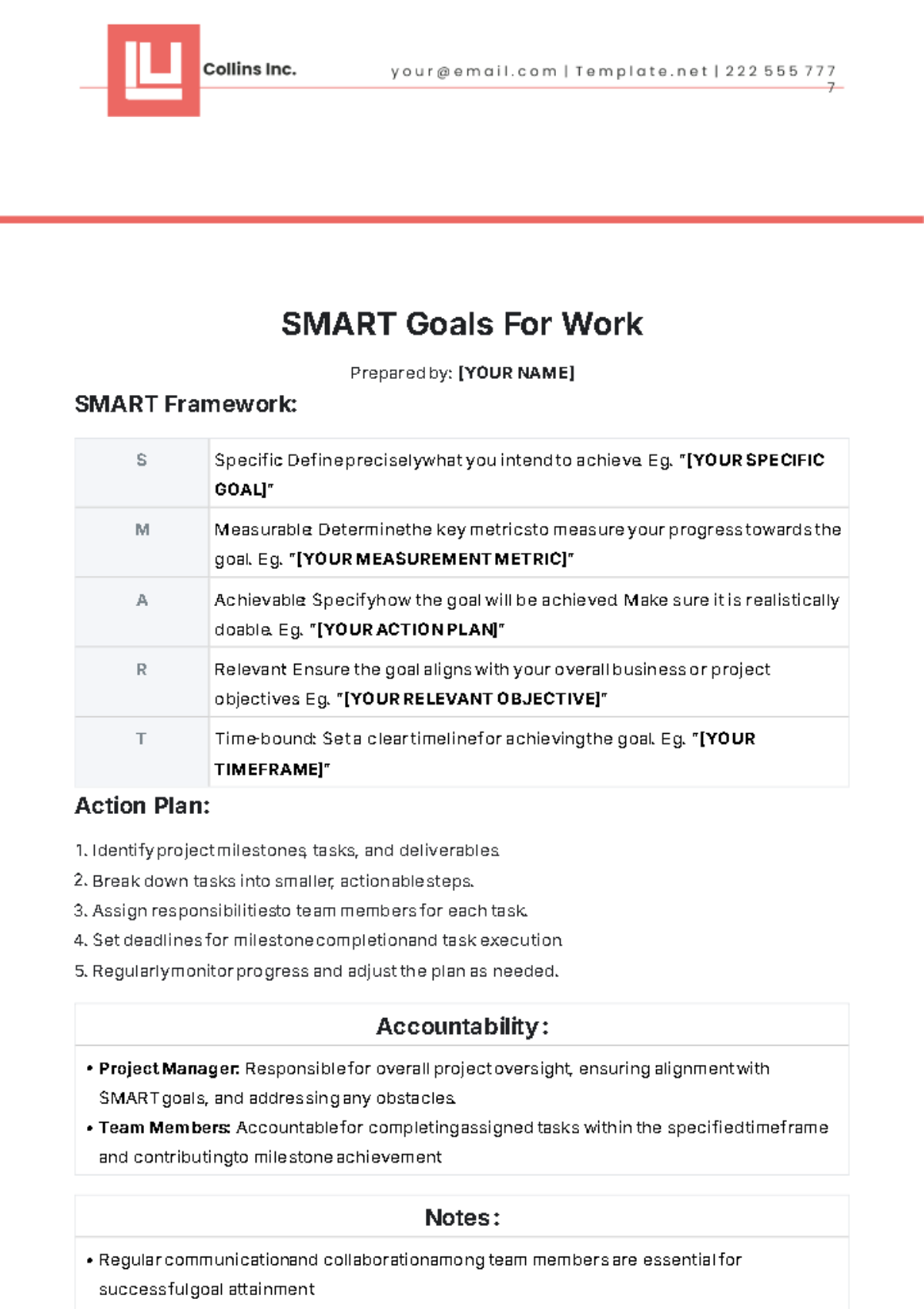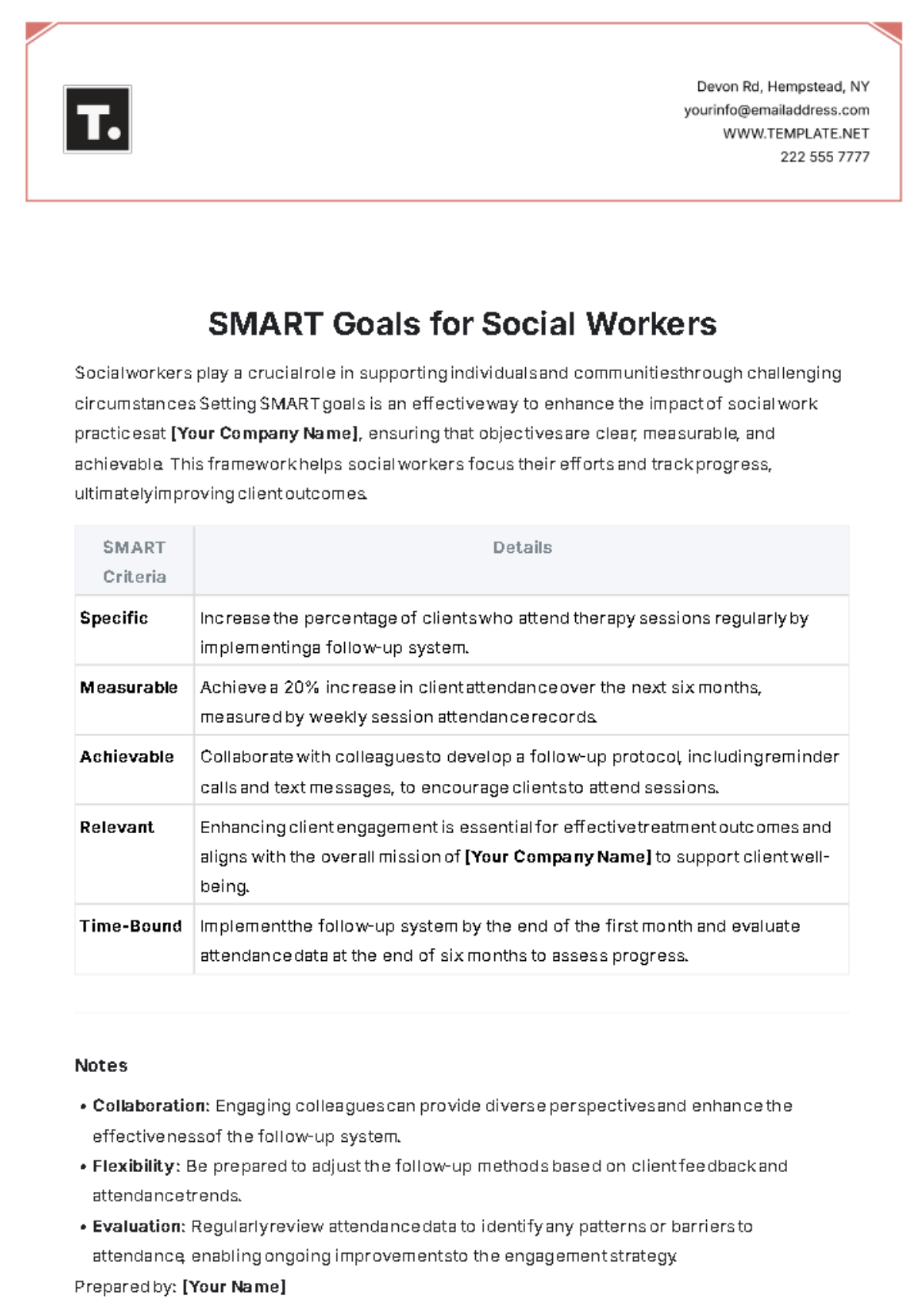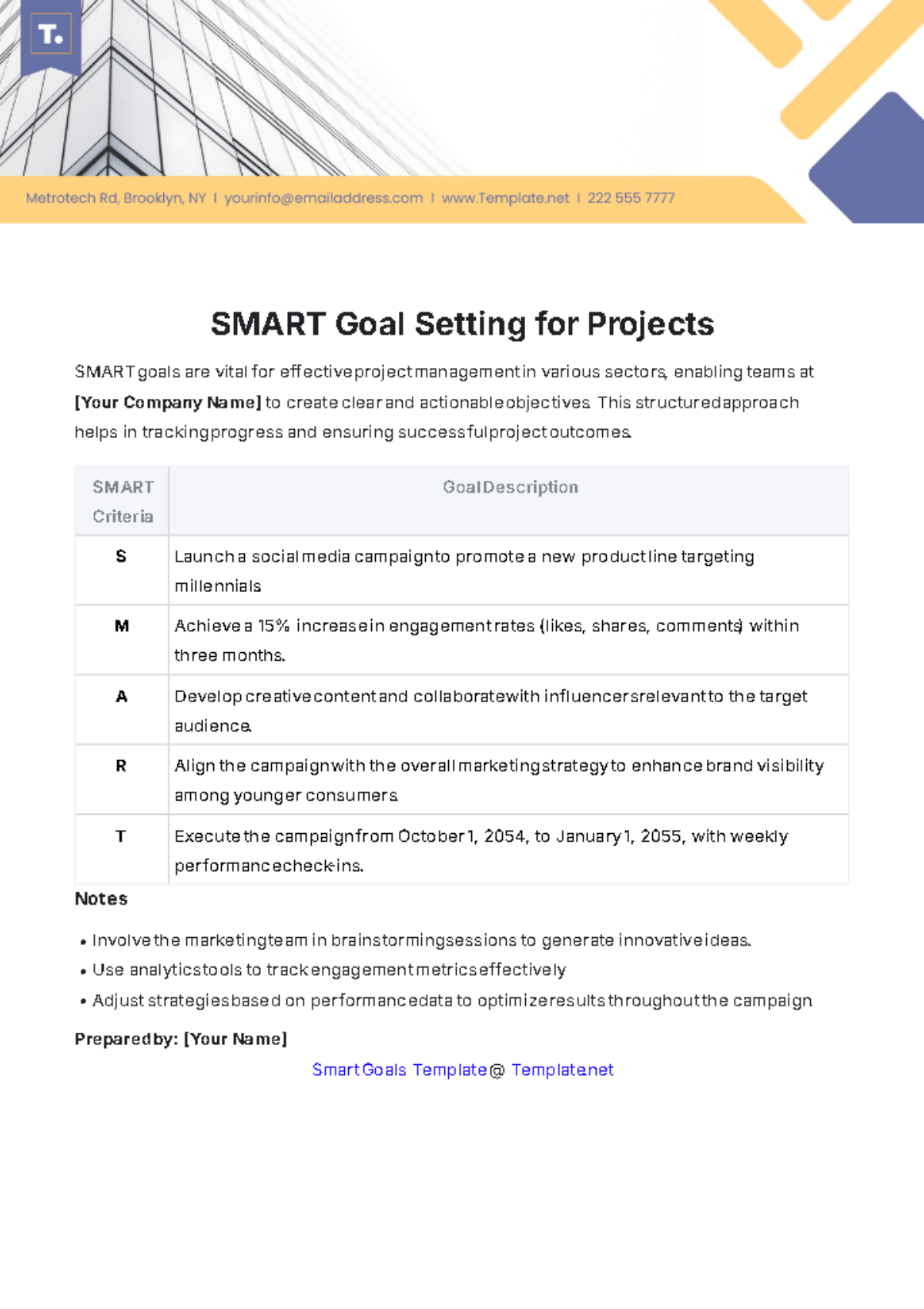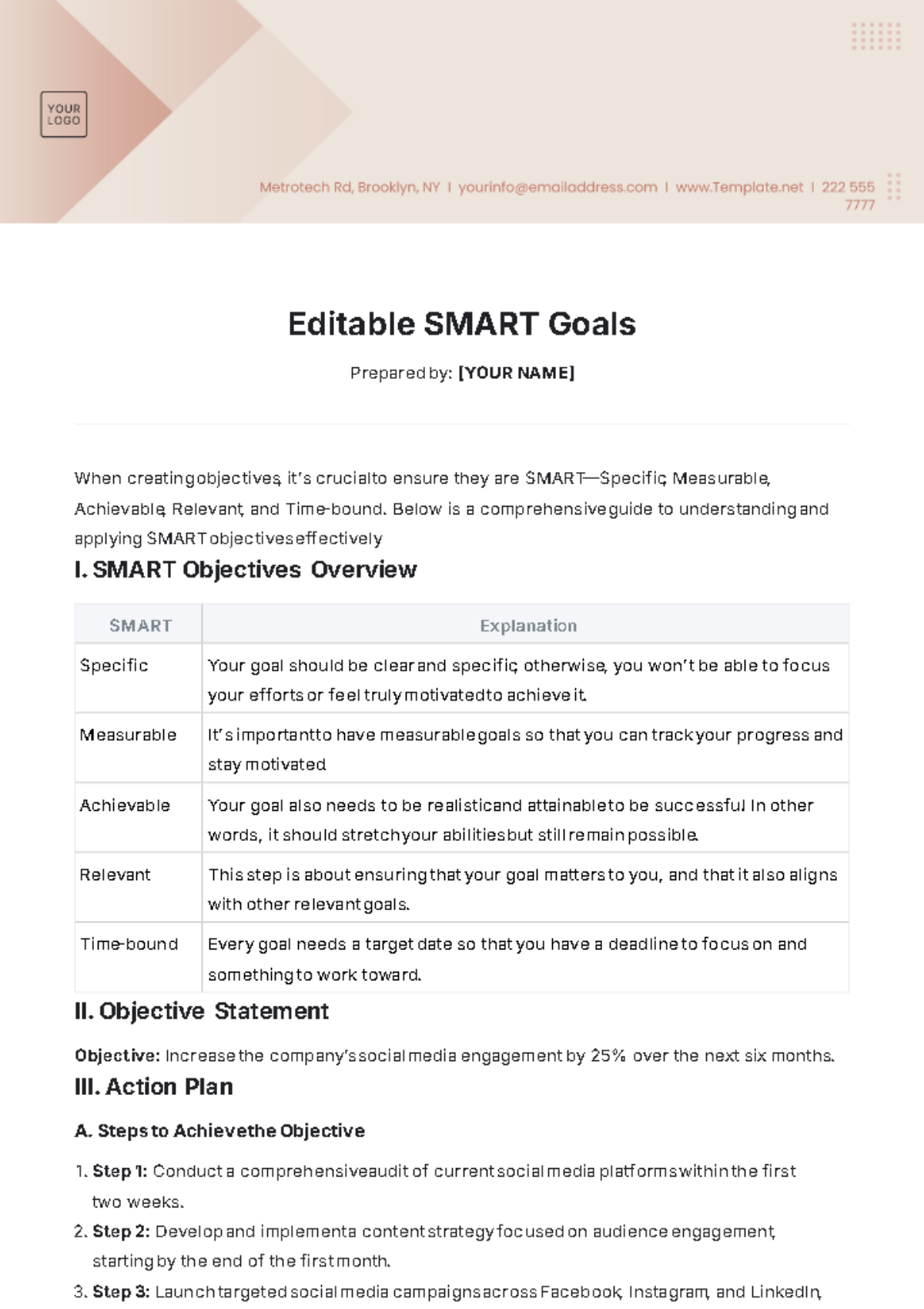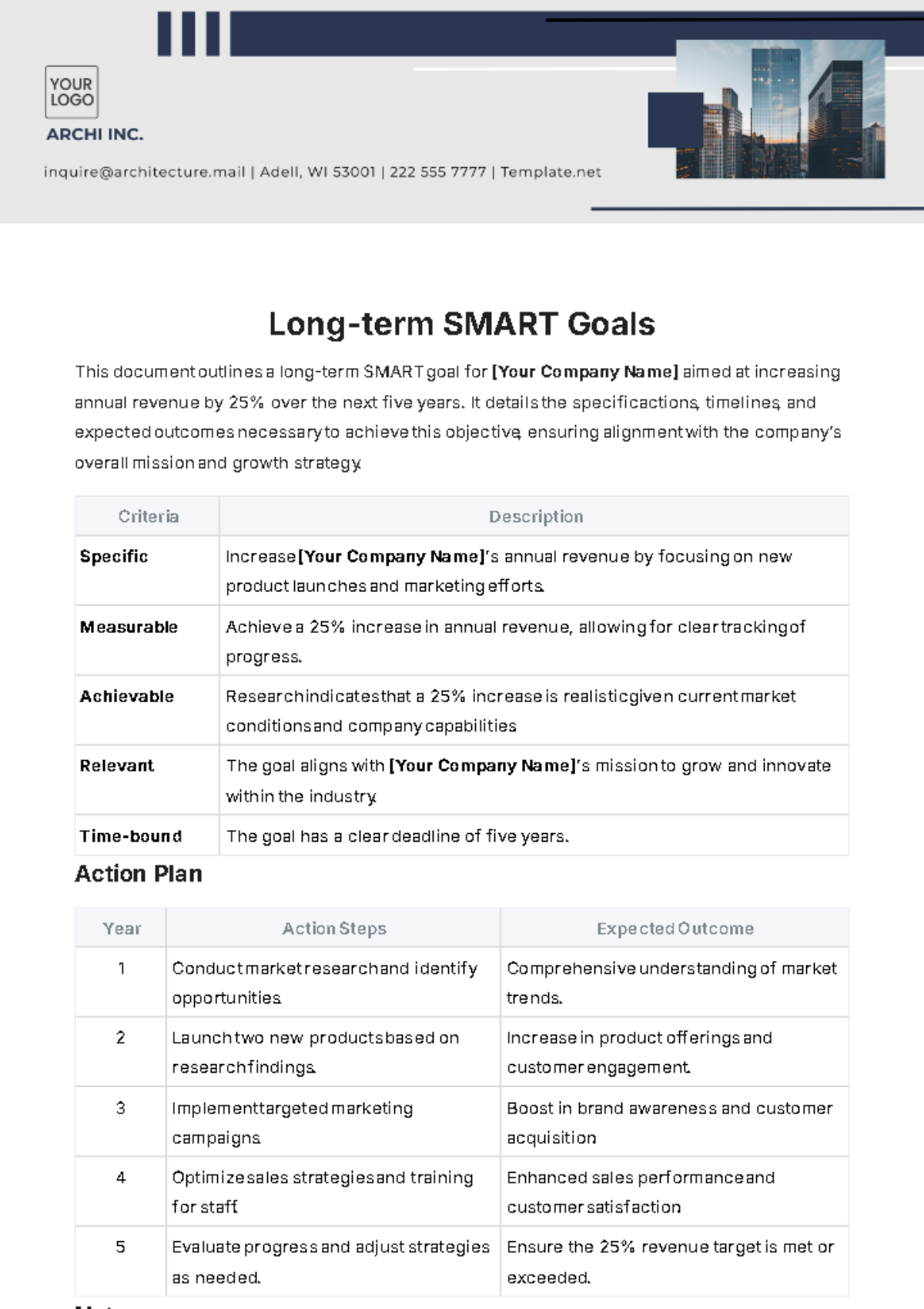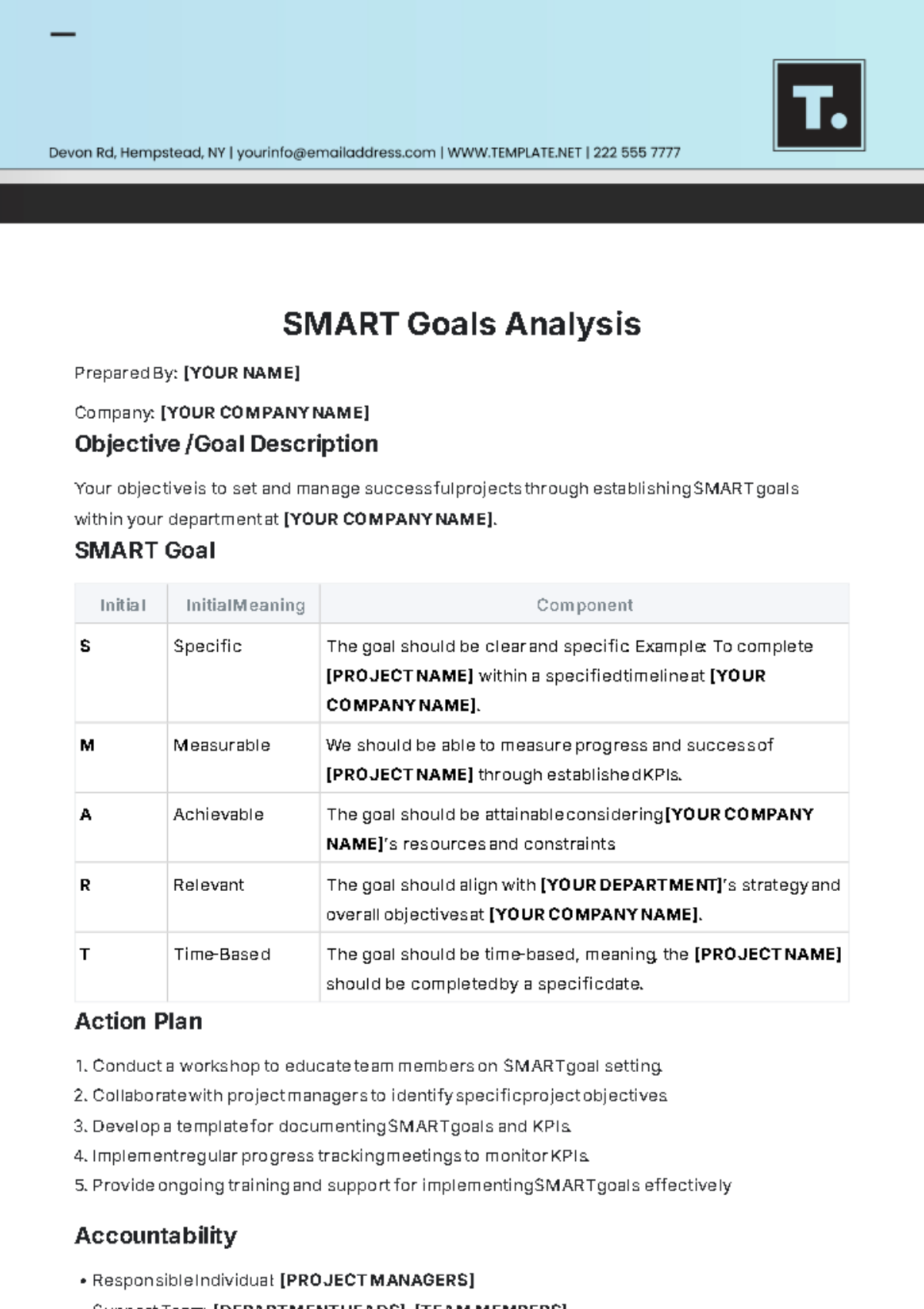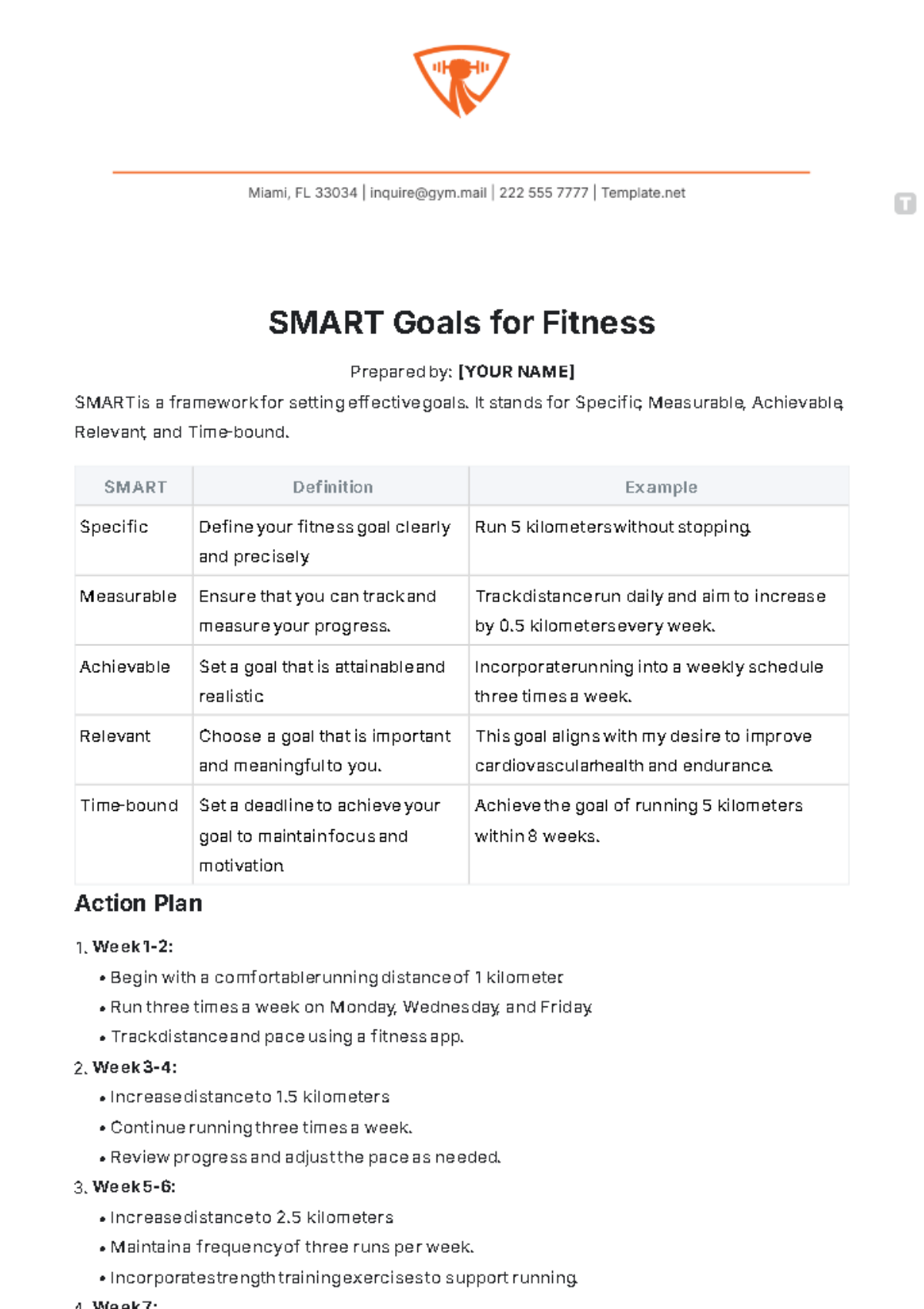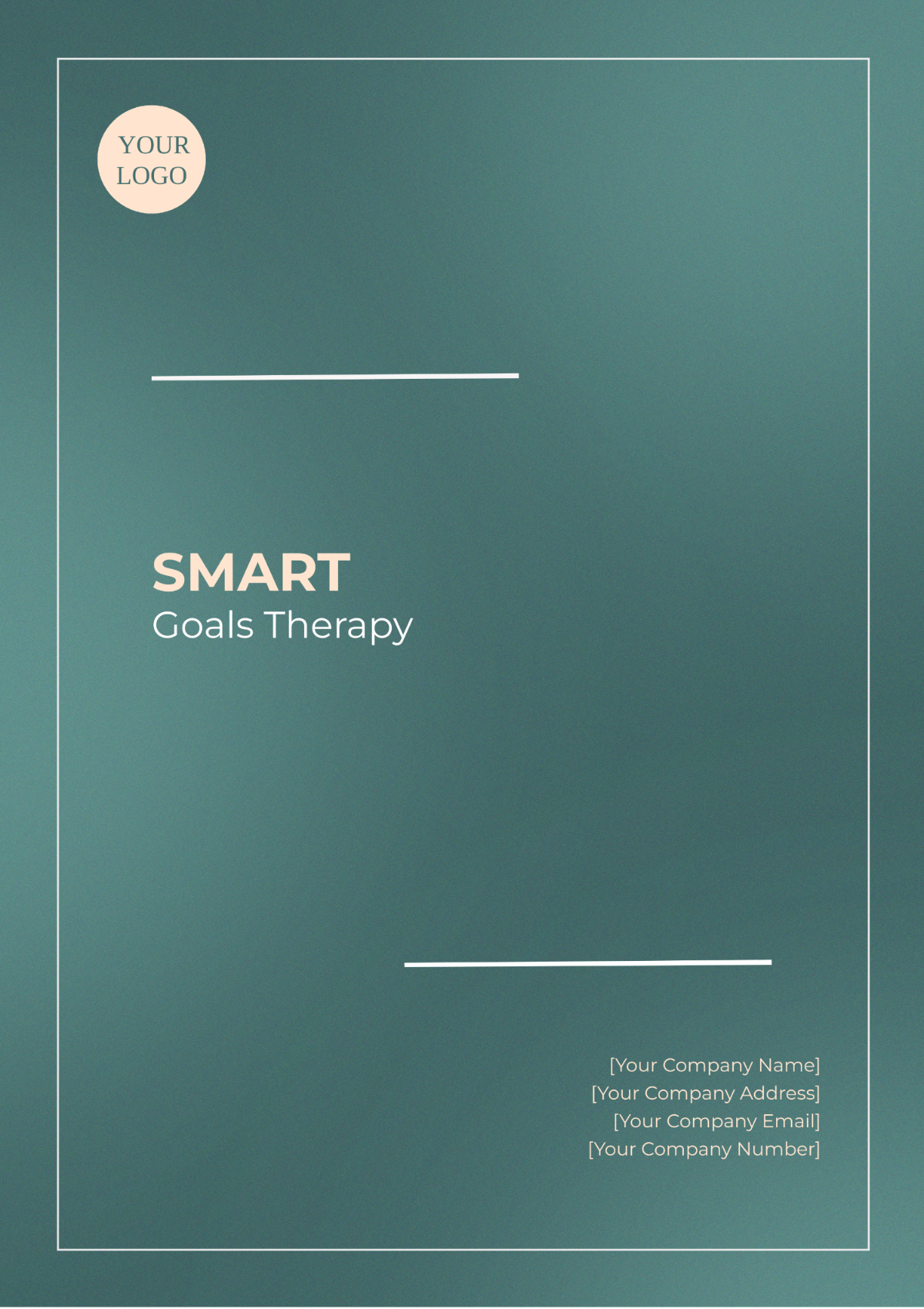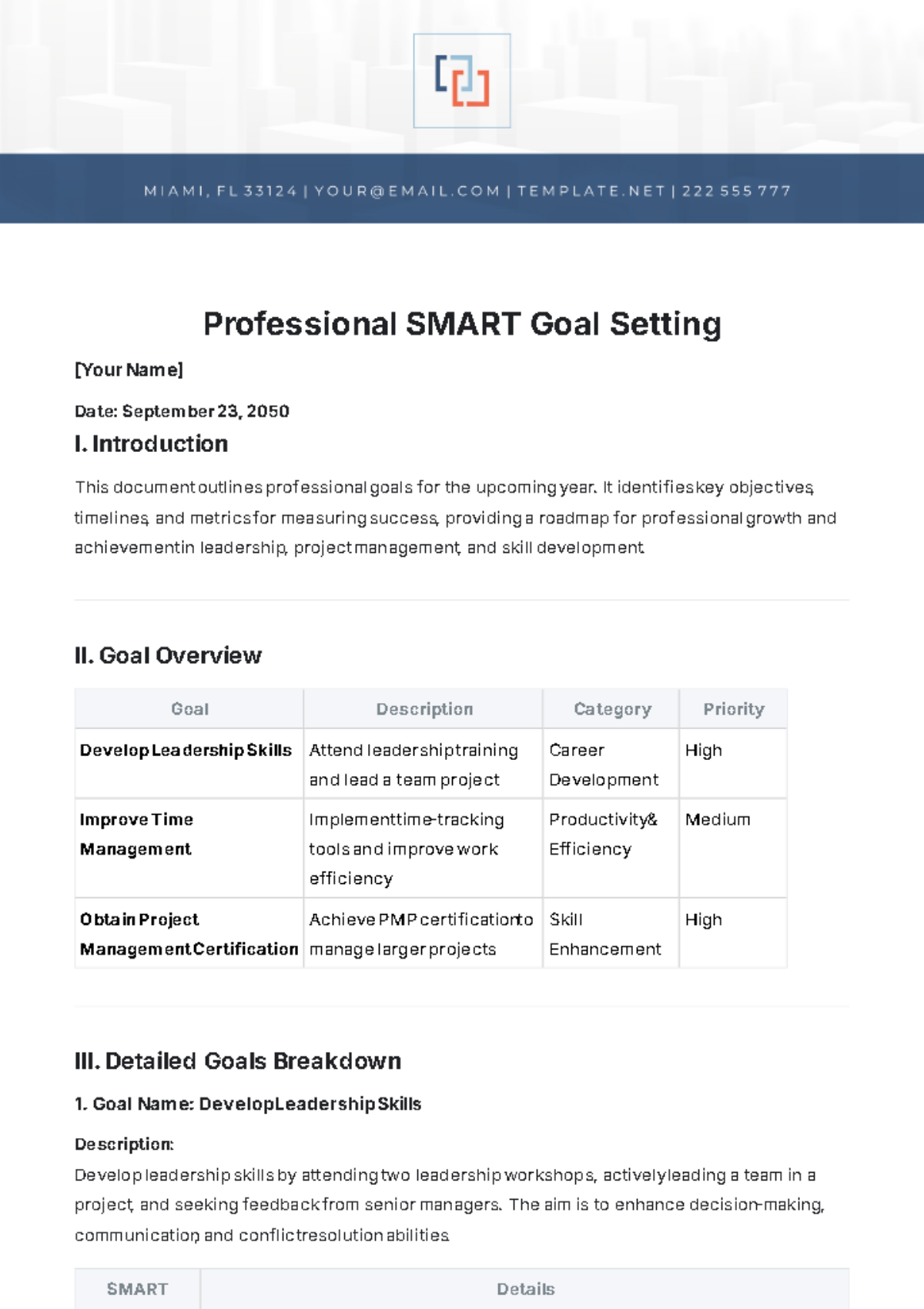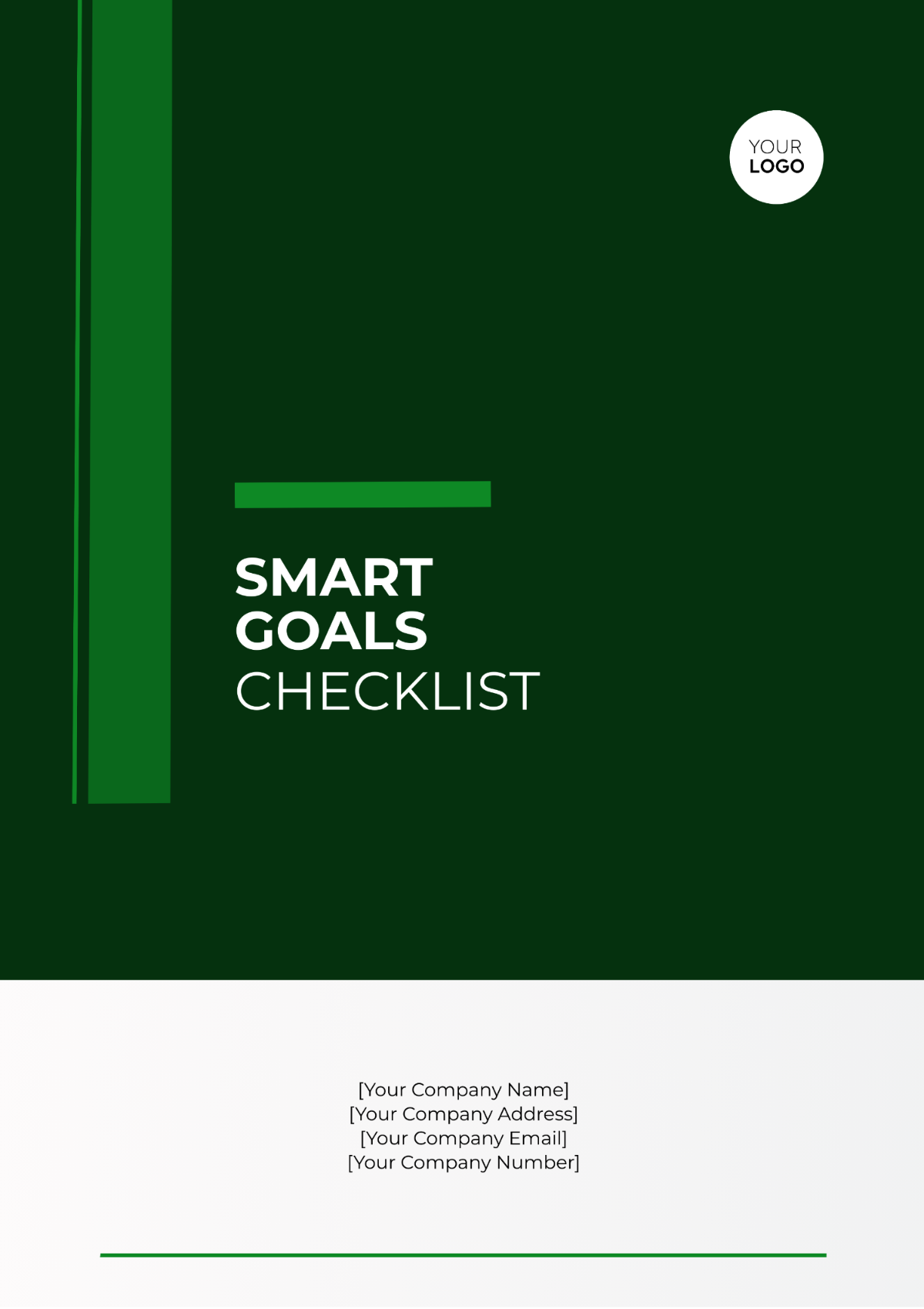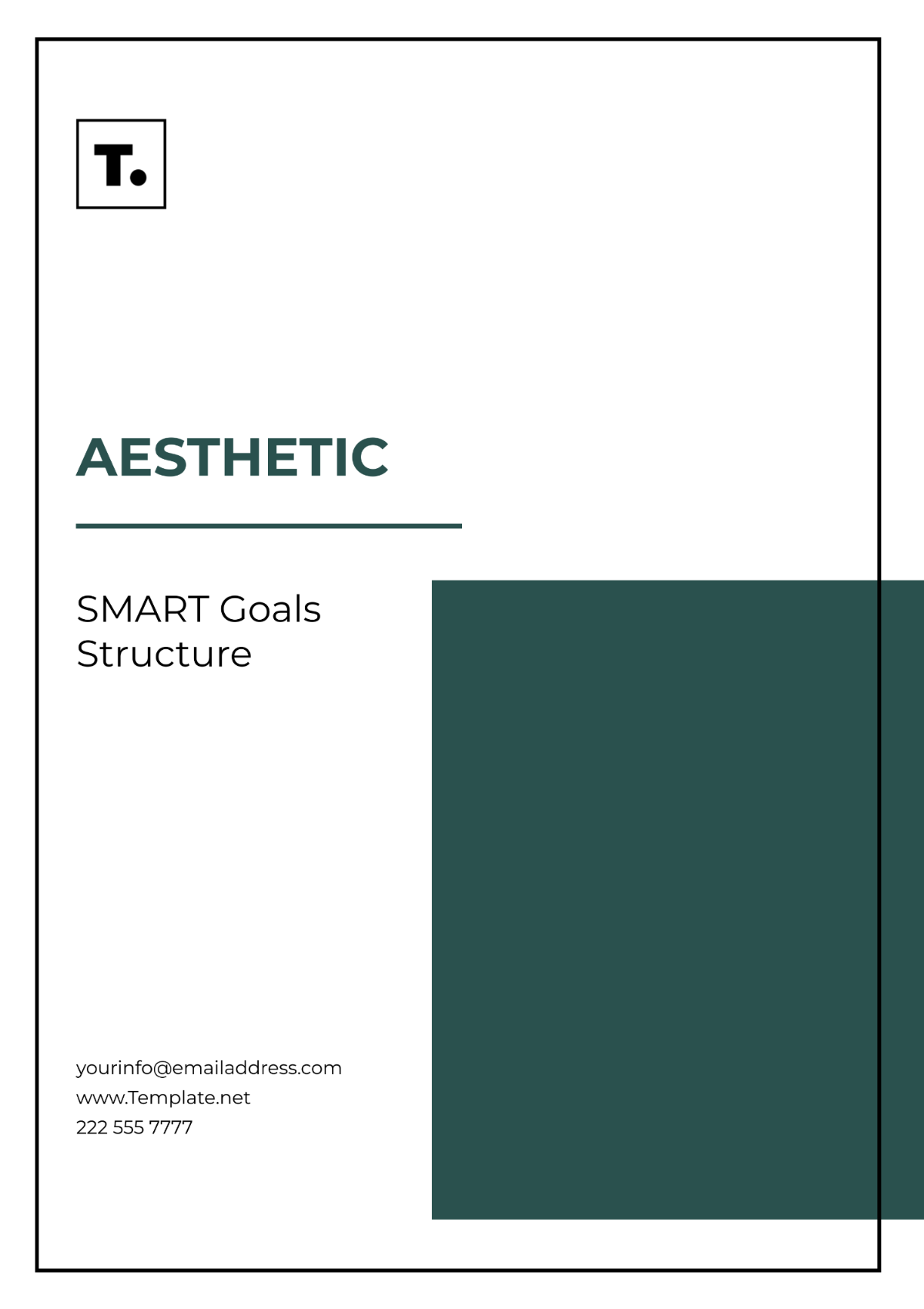SMART Goals for Learning
Prepared by: [YOUR NAME]
Institution: [YOUR COMPANY NAME]
Objective:
To develop a thorough understanding and effective application of the SMART goals-based approach for objectively assessing student performance in my role as an instructor at [YOUR COMPANY NAME]. By familiarizing myself with this approach, I aim to enhance the quality and transparency of student evaluations, ultimately fostering a more conducive learning environment and facilitating student success.
SMART Goal:
Initial | SMART Criteria | Goal Statement |
|---|---|---|
S | Specific | As an instructor at [YOUR COMPANY NAME], I want to learn about the SMART goals-based approach to objectively assess student performance. |
M | Measurable | I will know I have achieved my goal when I have successfully incorporated SMART goals into [NUMBER] of lesson plans and assessments. |
A | Achievable | I can achieve this goal by dedicating [NUMBER] of hours per week to researching and understanding the SMART goals-based approach, planning, and practicing its application in my lessons. |
R | Relevant | This goal is relevant as it will allow me to objectively assess student performance against highly defined criteria, ensuring a more fair and transparent evaluation process at [YOUR COMPANY NAME]. |
T | Time-bound | I plan to have fully incorporated the SMART goals-based approach into my lesson planning and evaluation framework by the end of the [TIME FRAME]. |
Action Plan:
Research and Understanding: Dedicate [NUMBER] of hours per week to researching and understanding the SMART goals-based approach.
Implementation: Incorporate SMART goals into [NUMBER] of lesson plans and assessments, ensuring alignment with course objectives and student learning outcomes.
Feedback: Seek feedback from [MENTORS] who have experience with implementing SMART goals in their teaching practices.
Training: Attend [TRAINING SESSIONS] focused on the application of SMART goals in education.
Reflection and Adjustment: Reflect on the effectiveness of incorporating SMART goals into teaching practices and make adjustments as needed.
Accountability:
Personal Responsibility: Take ownership of dedicating time and effort to understand and implement the SMART goals-based approach effectively.
Feedback and Engagement: Seek feedback from [colleagues or mentors] and actively engage in discussions about the application of SMART goals in teaching.
Progress Review: Regularly review progress towards incorporating SMART goals into lesson plans and assessments, adjusting strategies as needed to stay on track.
Notes:
Keep detailed records of the SMART goals implemented in lesson plans and assessments, noting any challenges or successes encountered during the process.
Reflect on student responses and outcomes associated with the use of SMART goals to inform future teaching practices.
Stay open to feedback and continuously seek opportunities for professional growth and development in implementing SMART goals.
